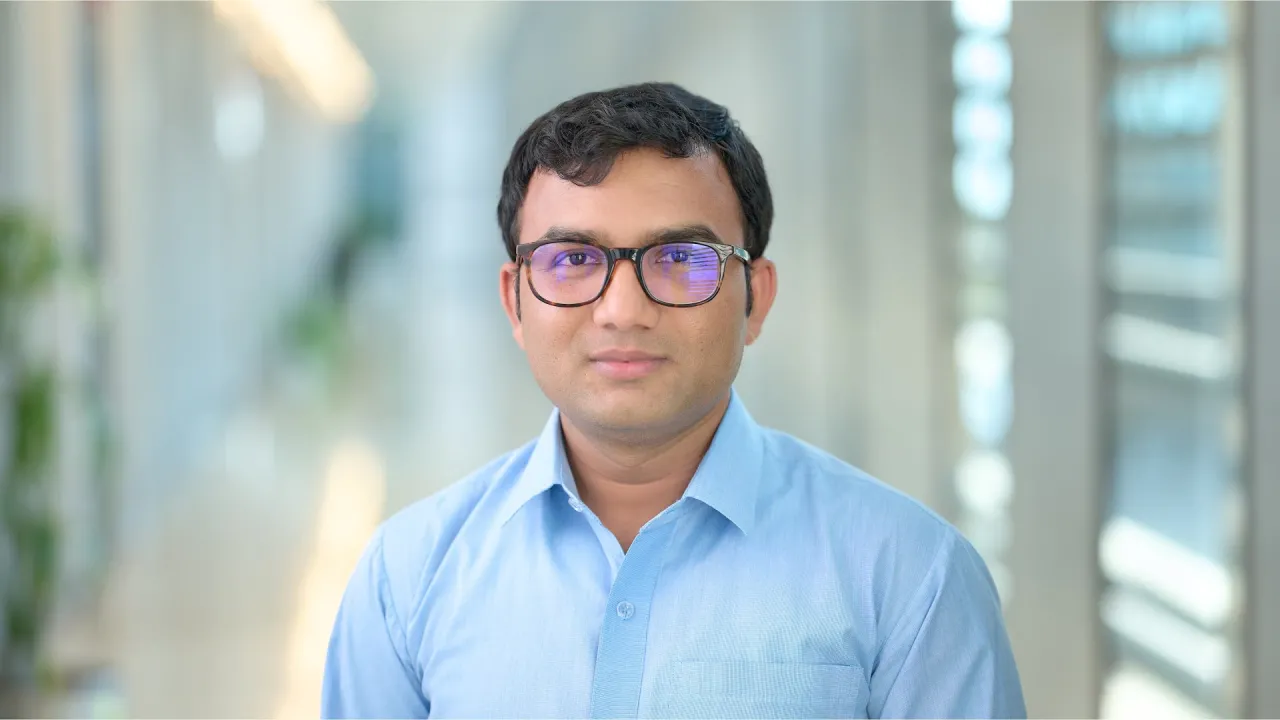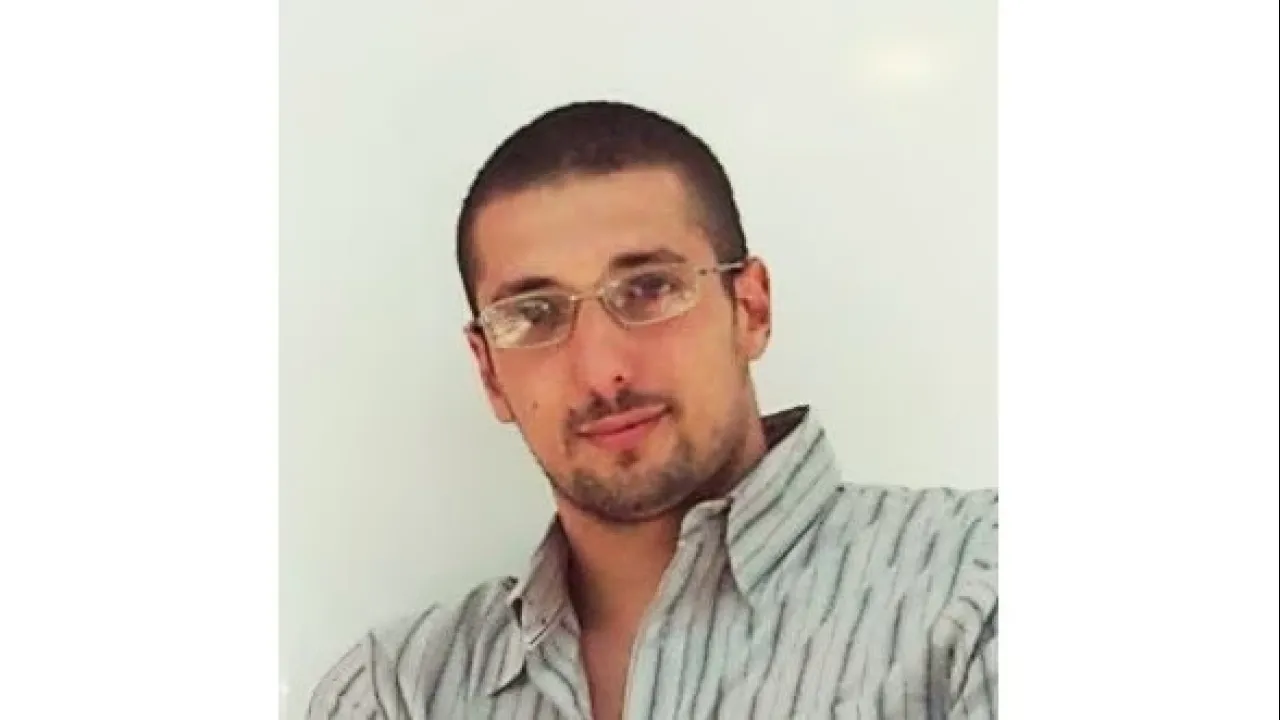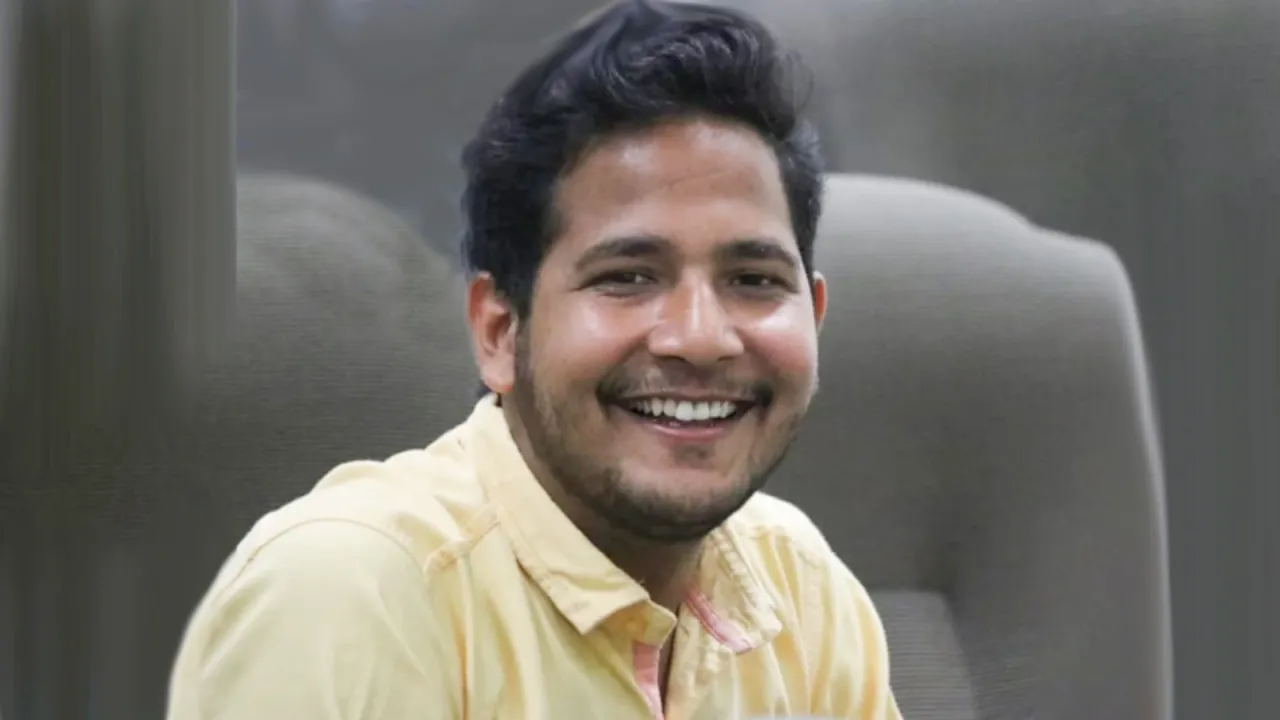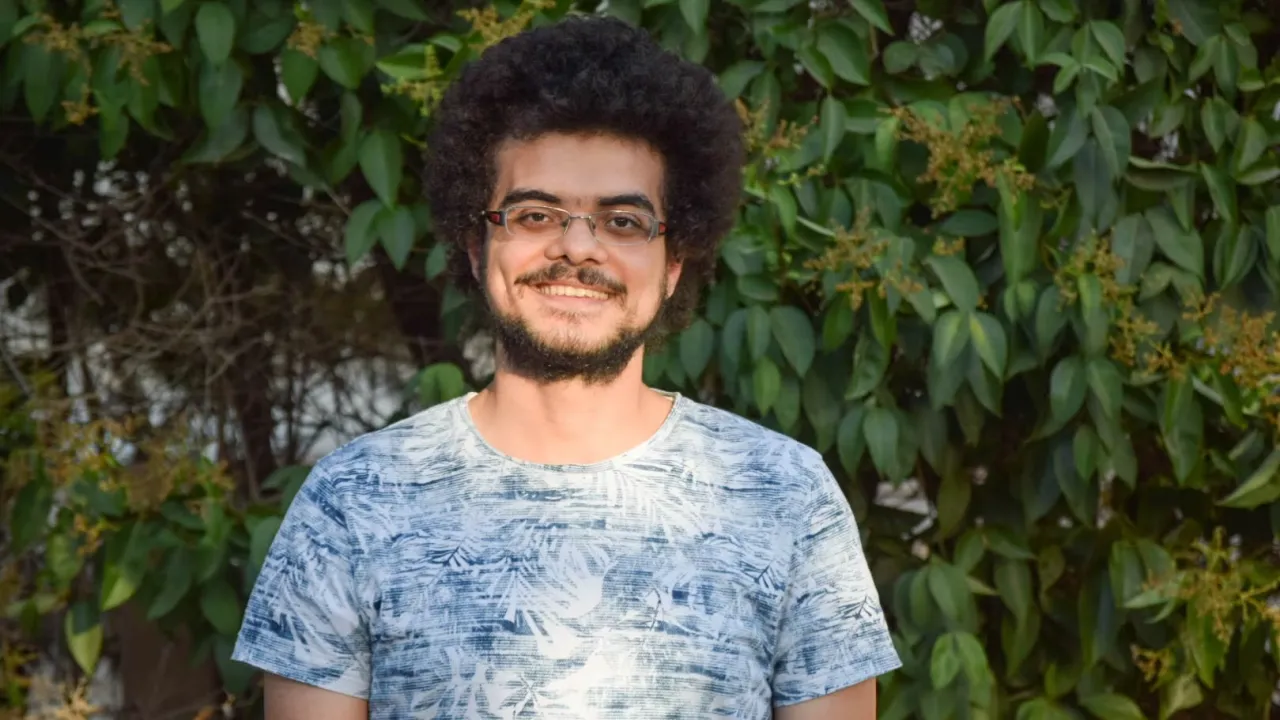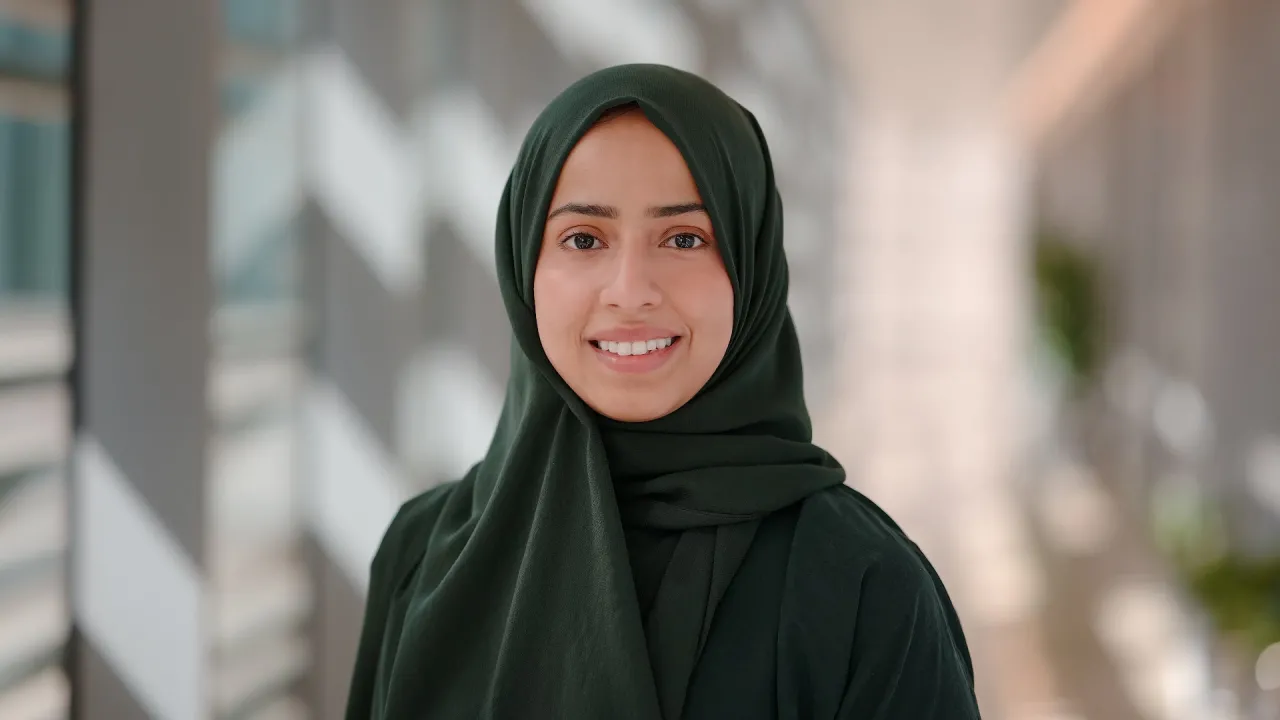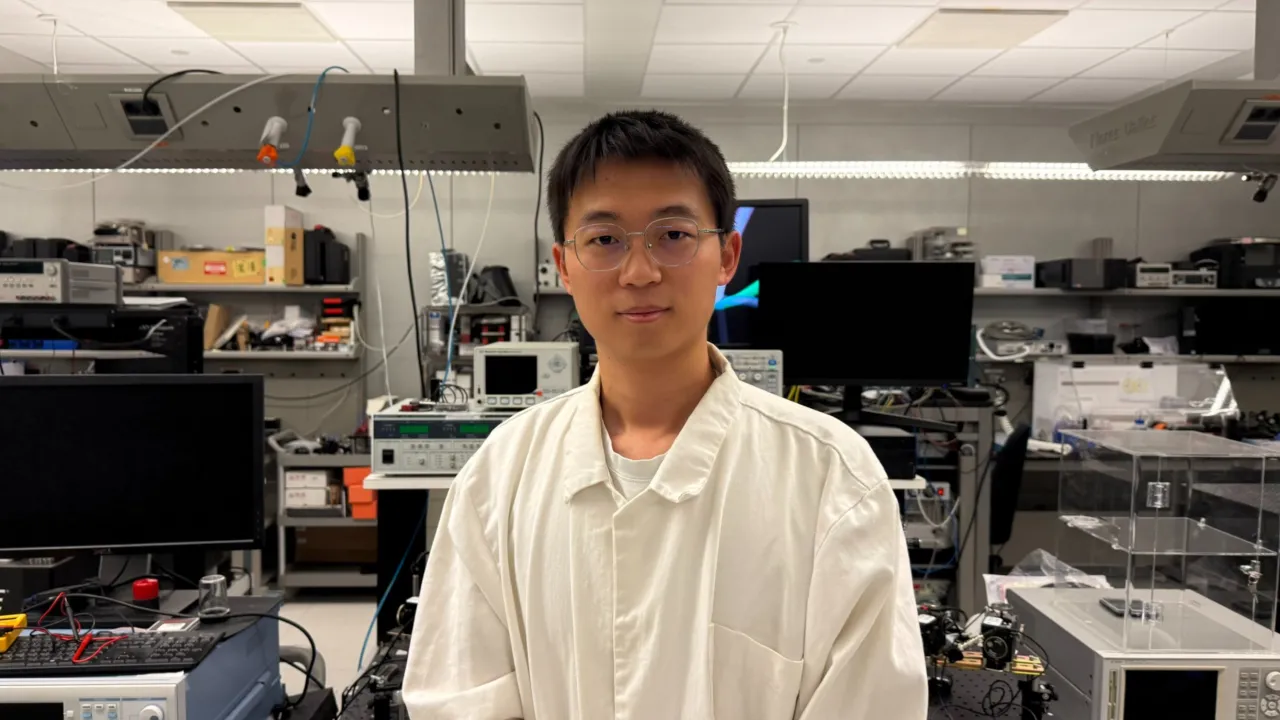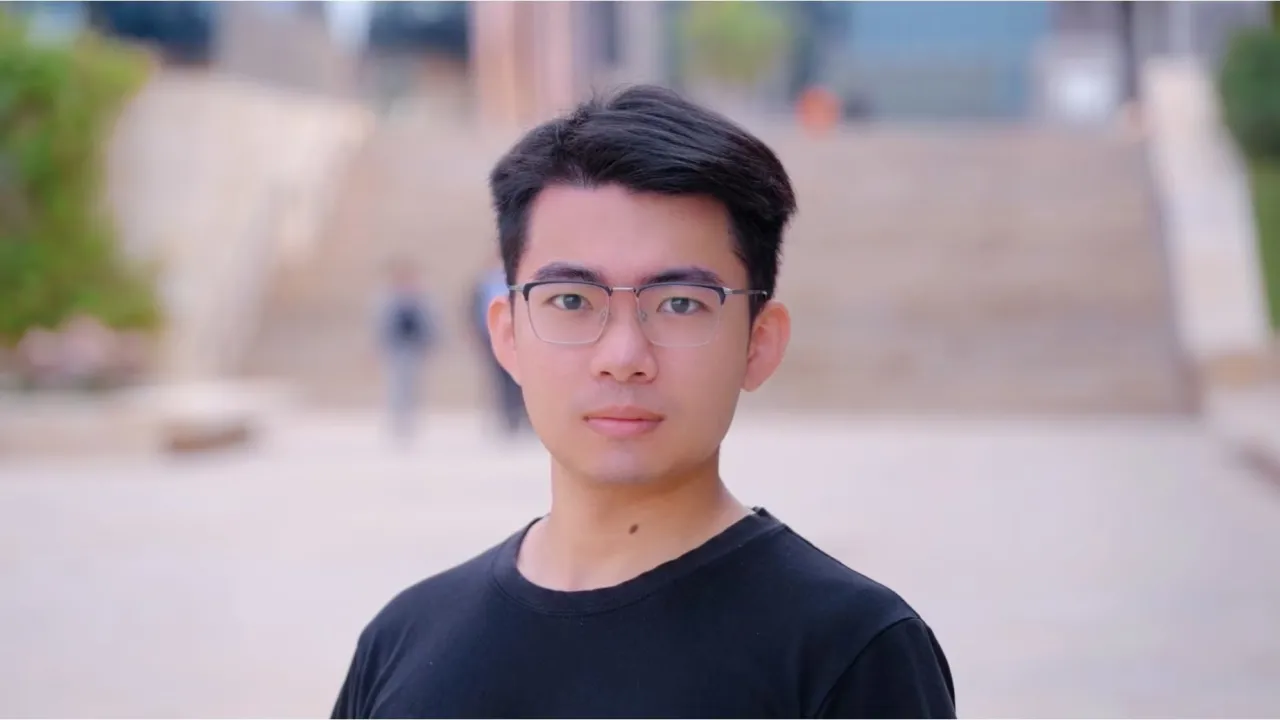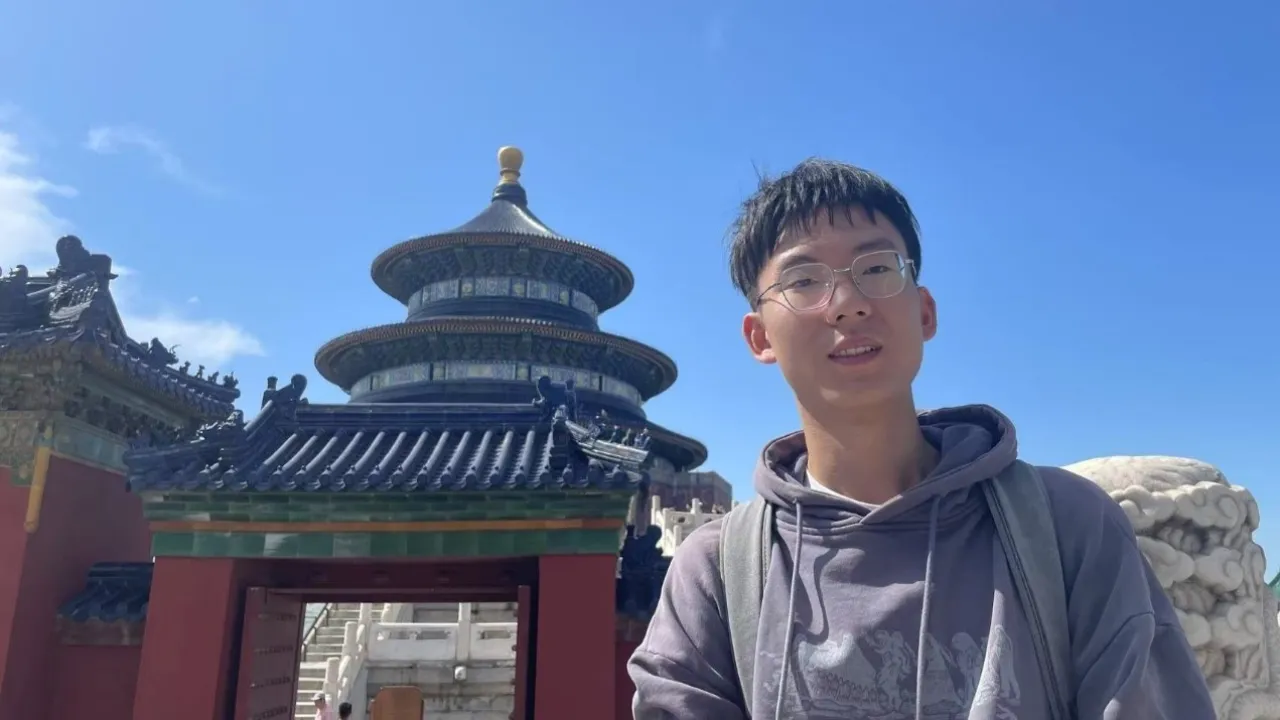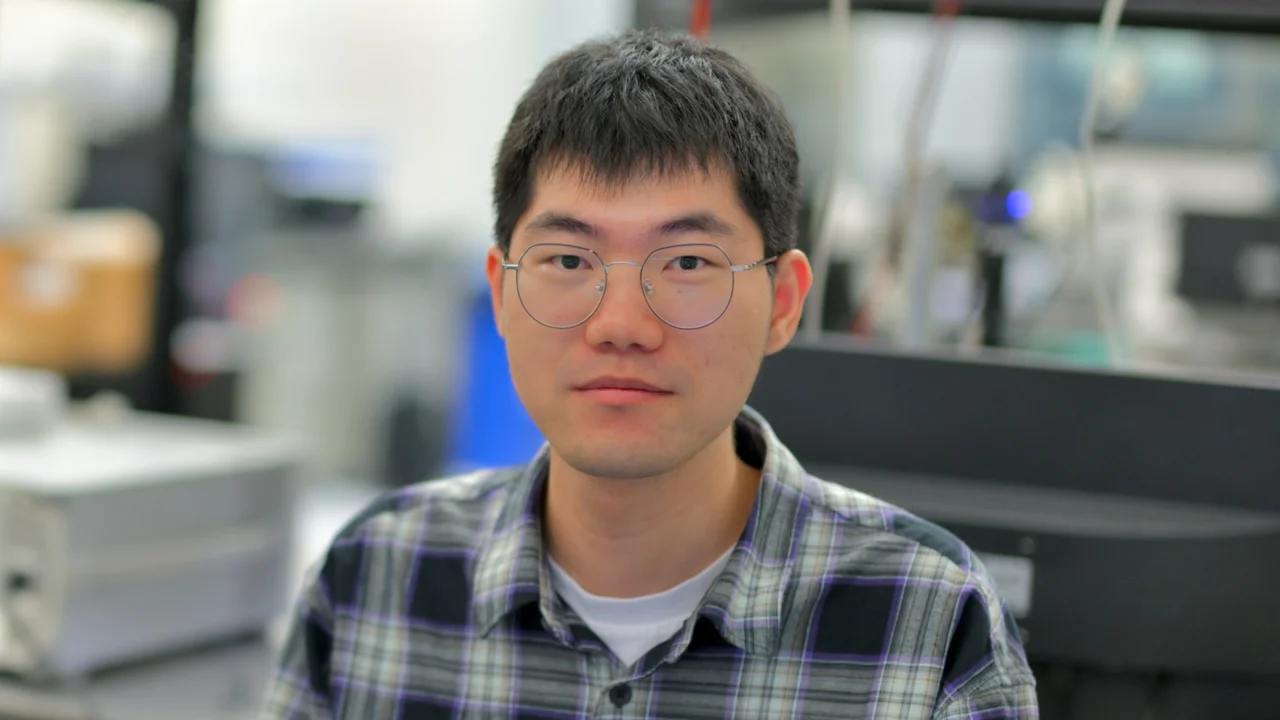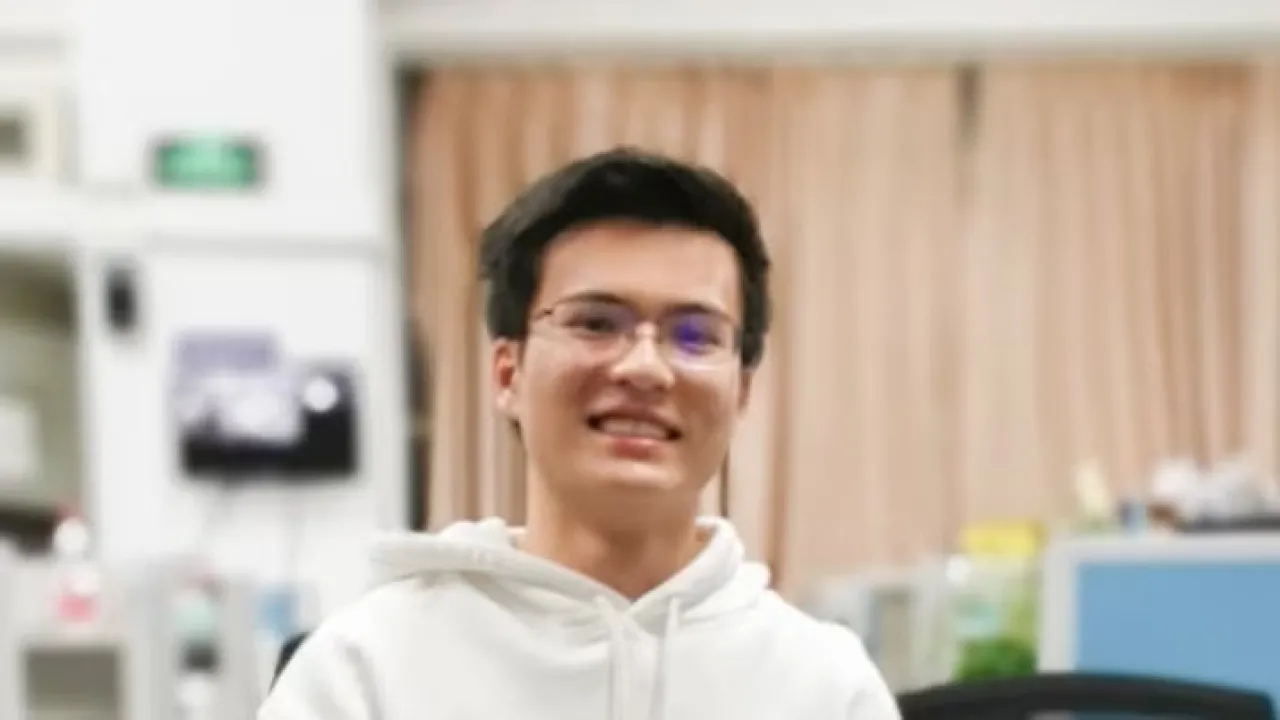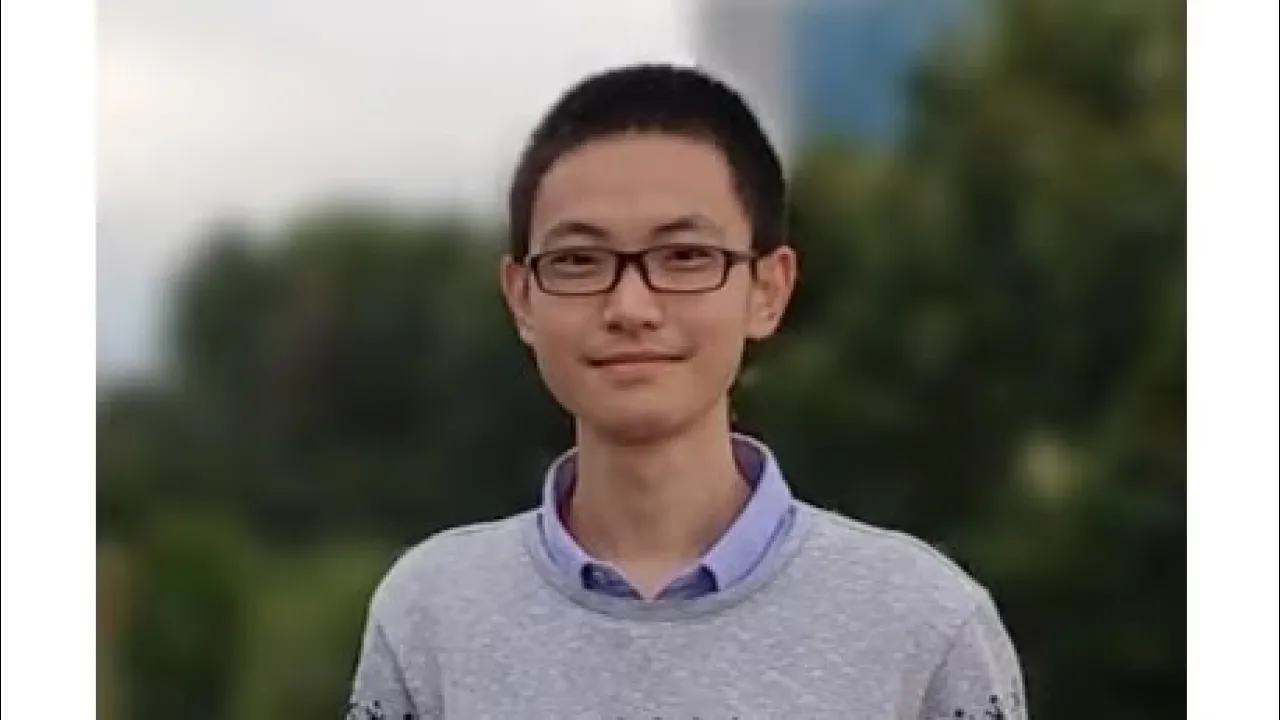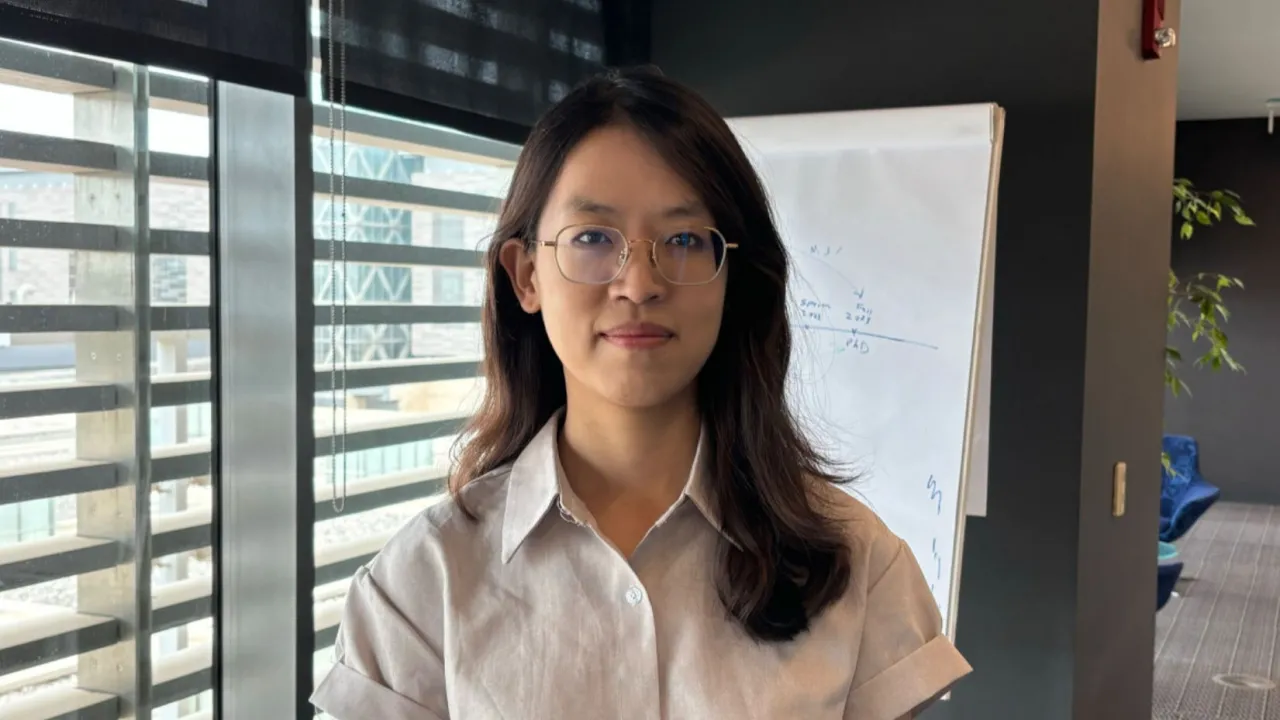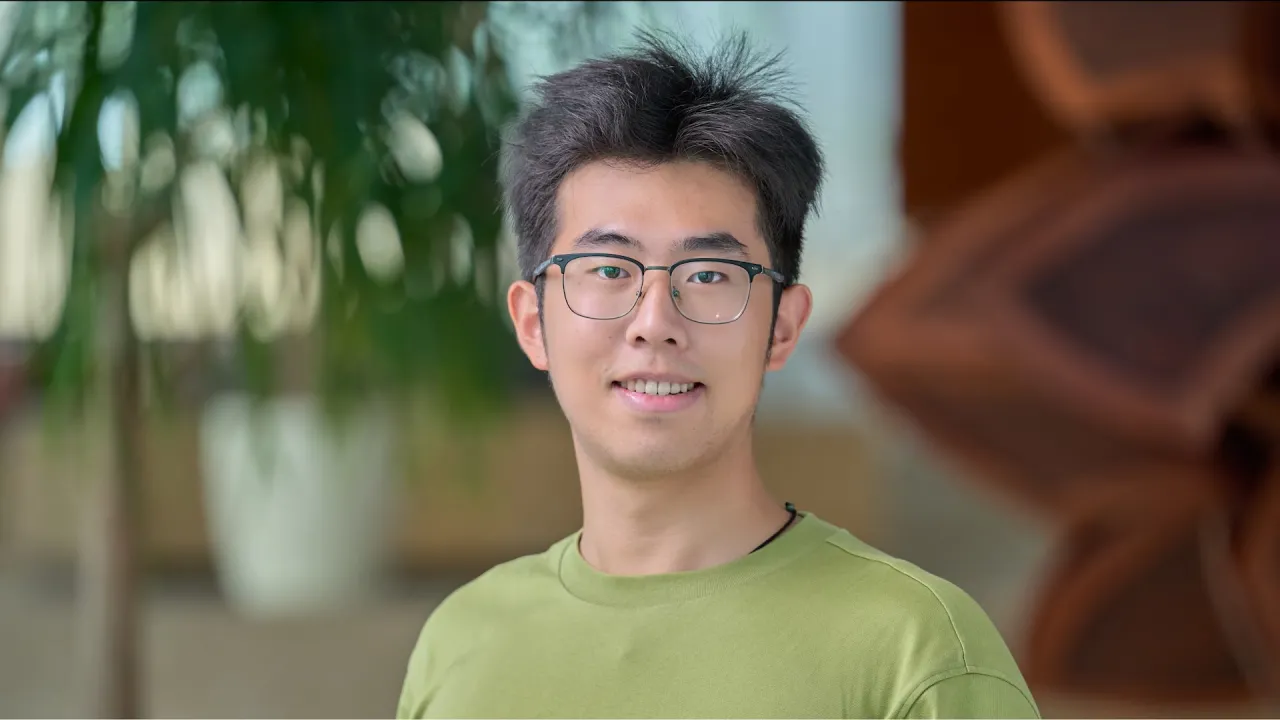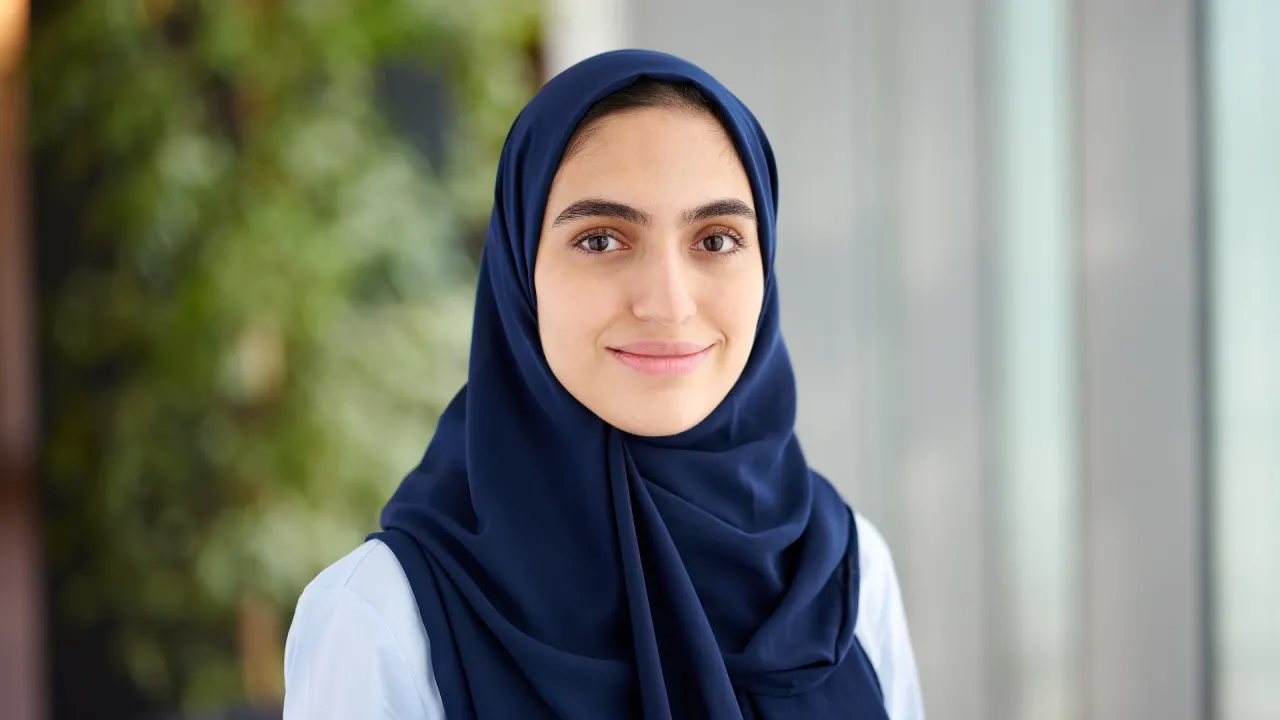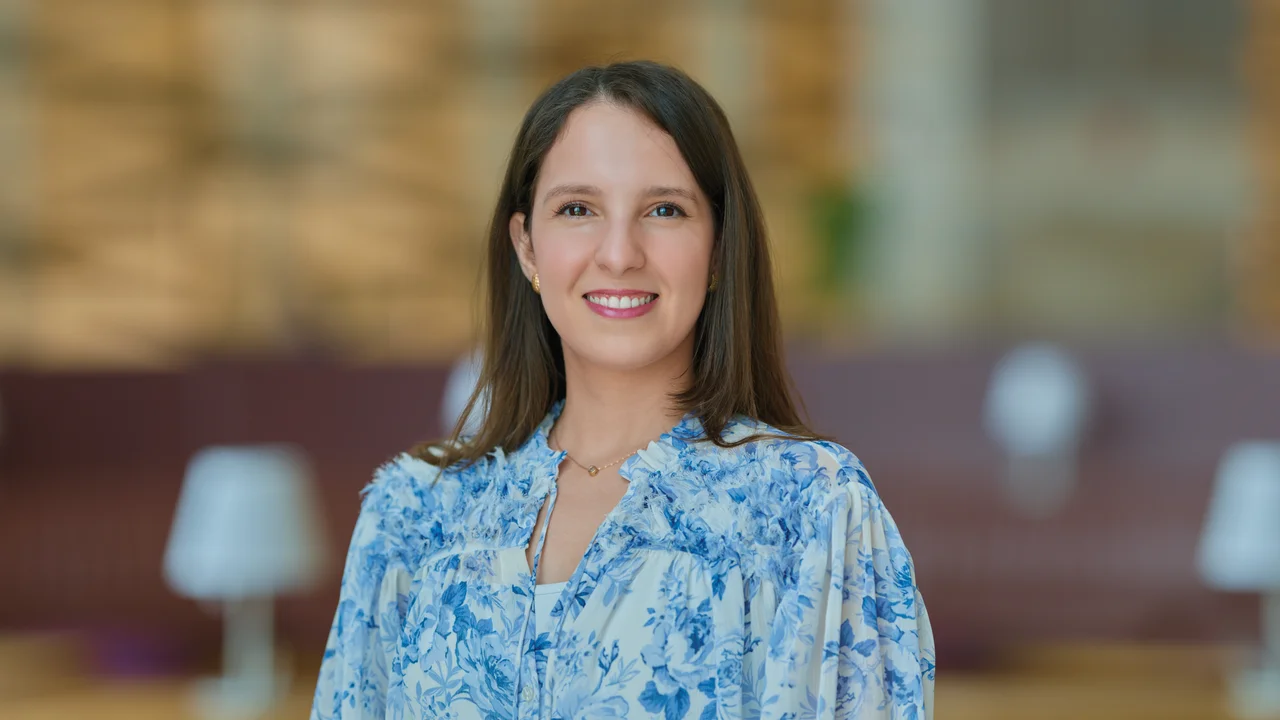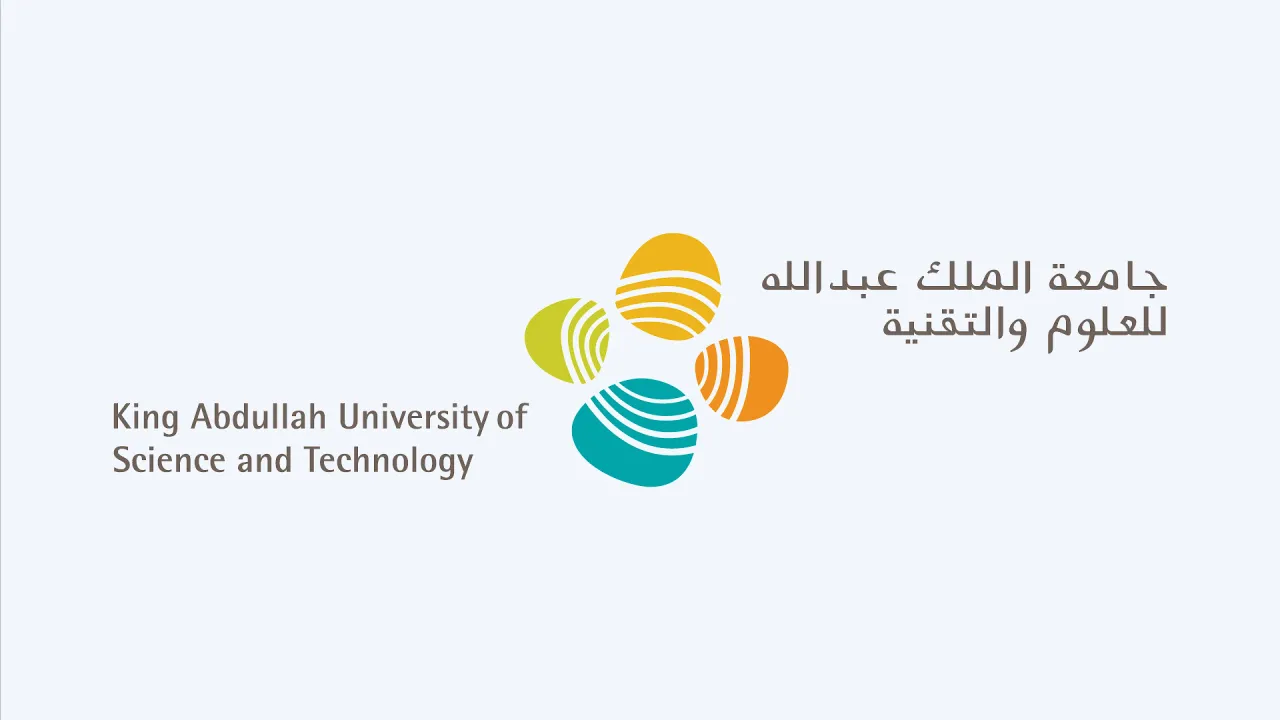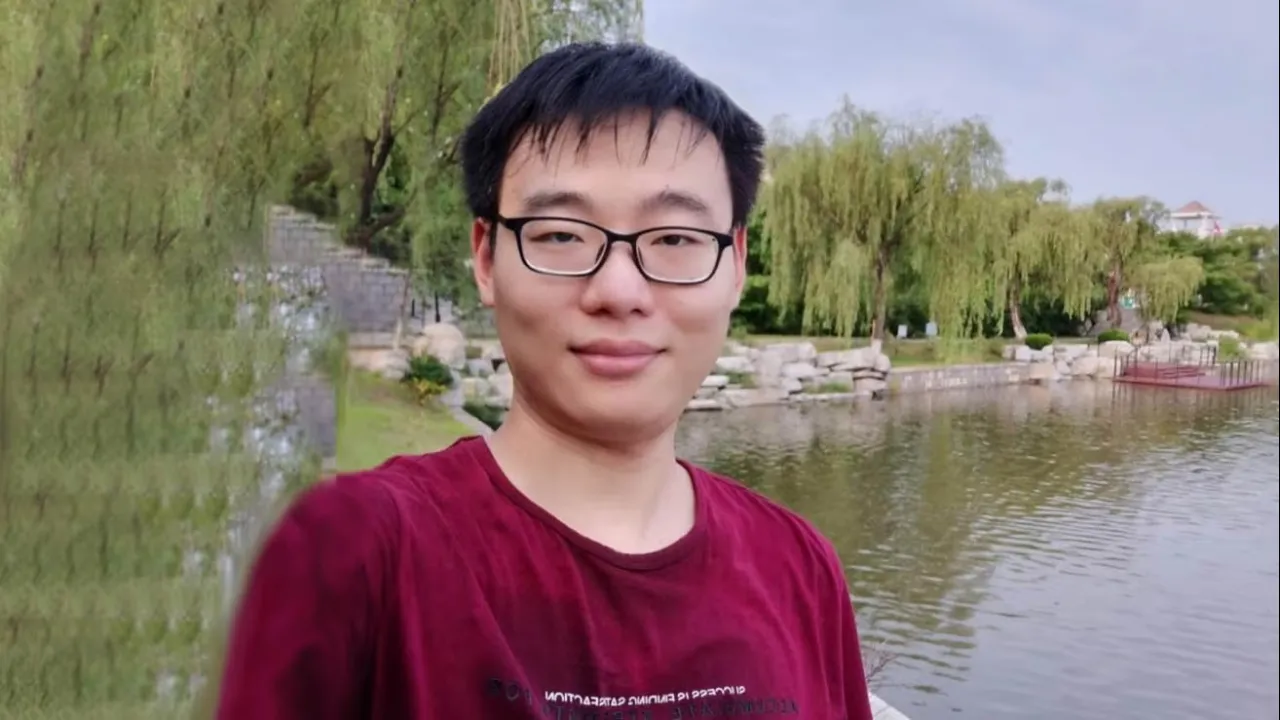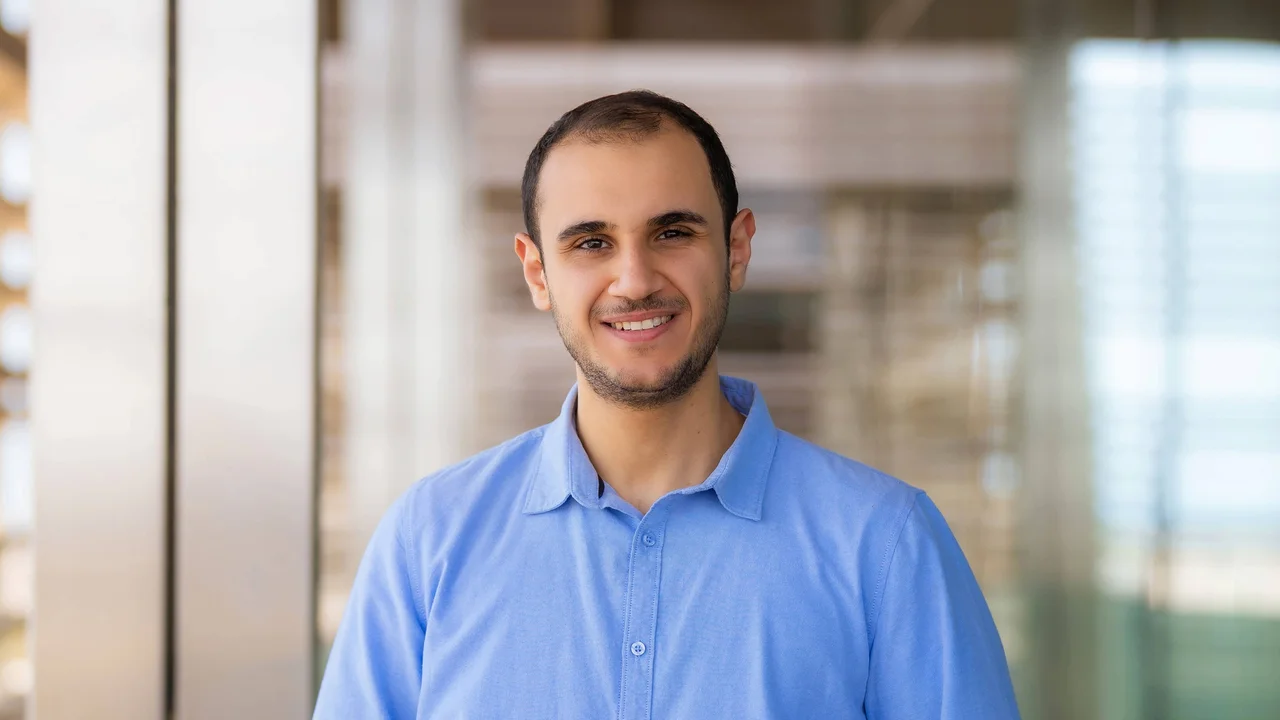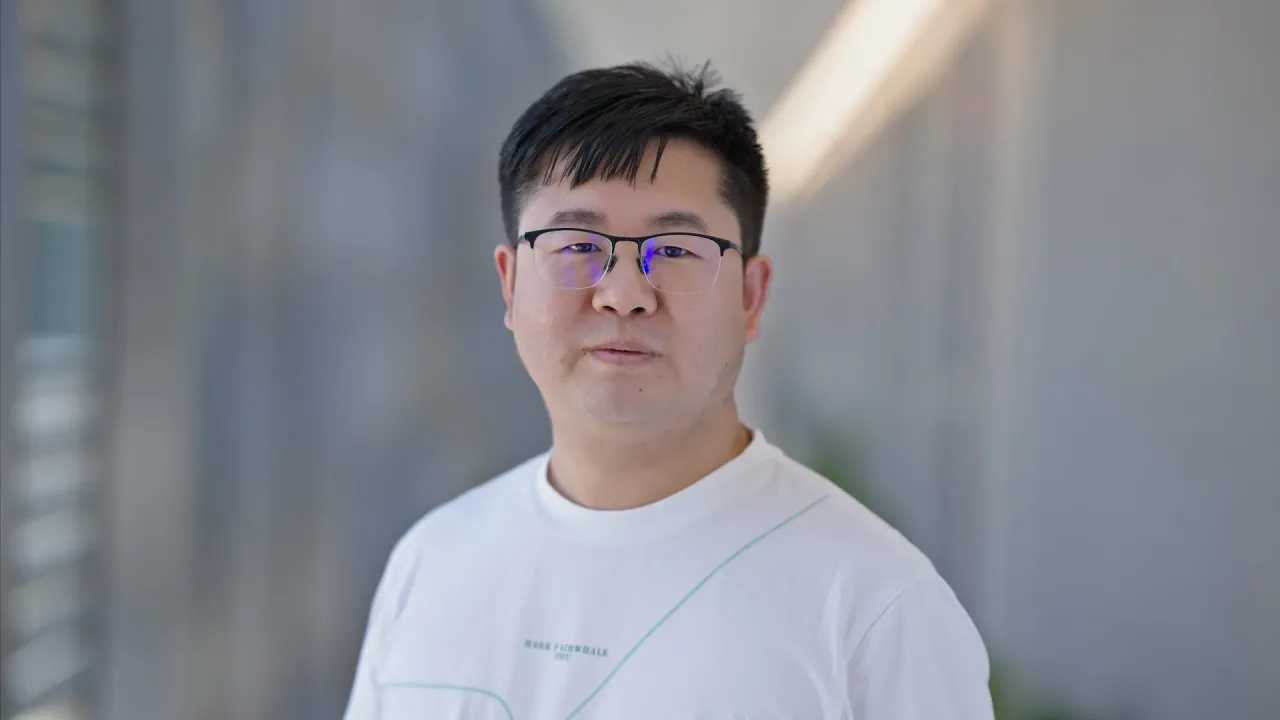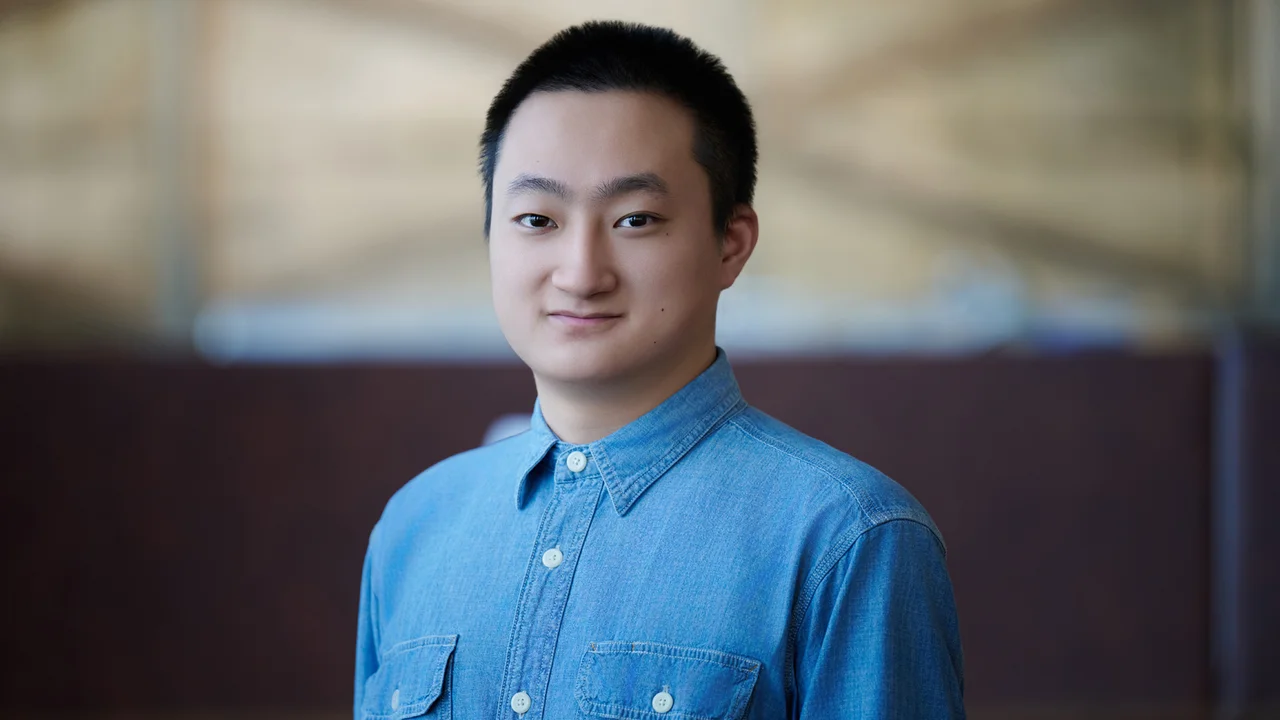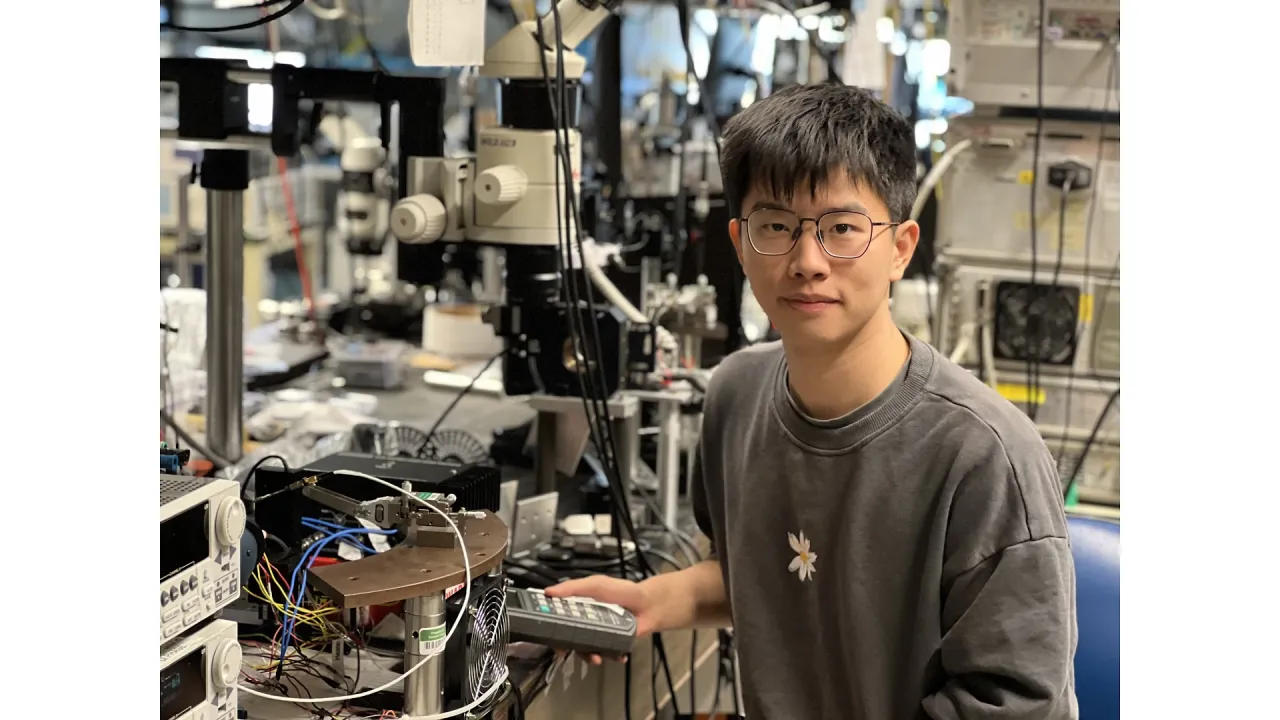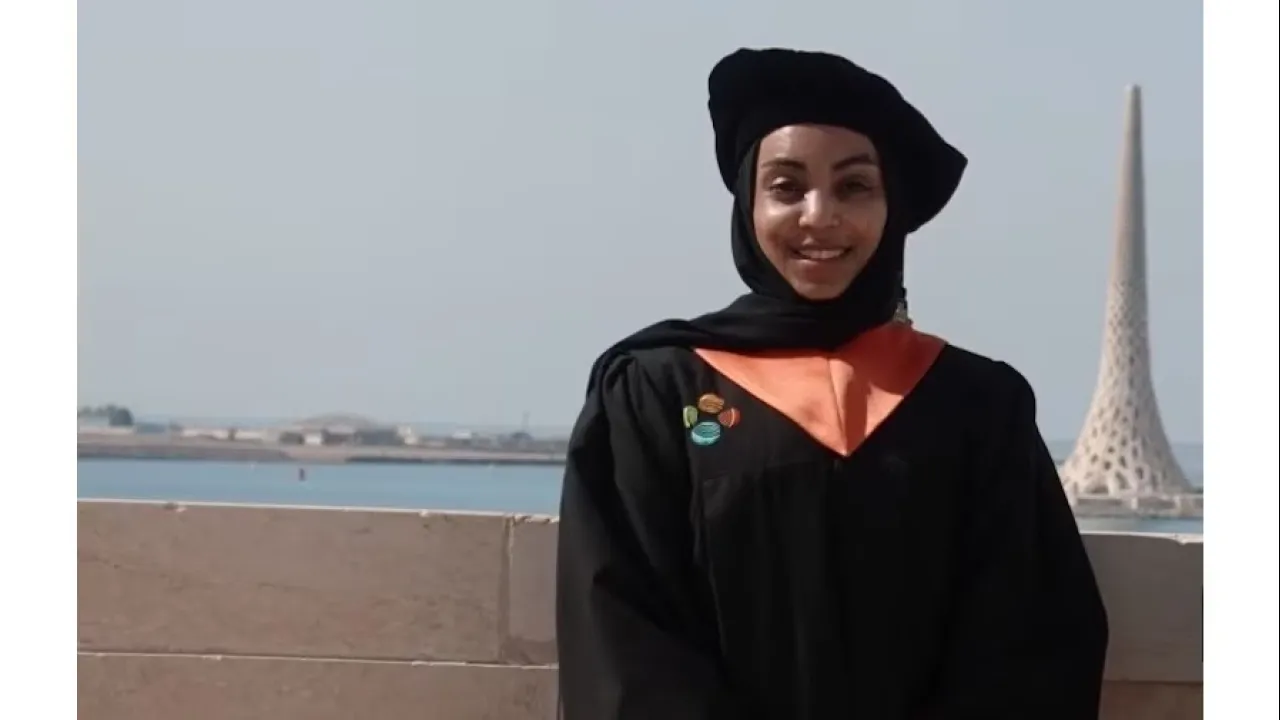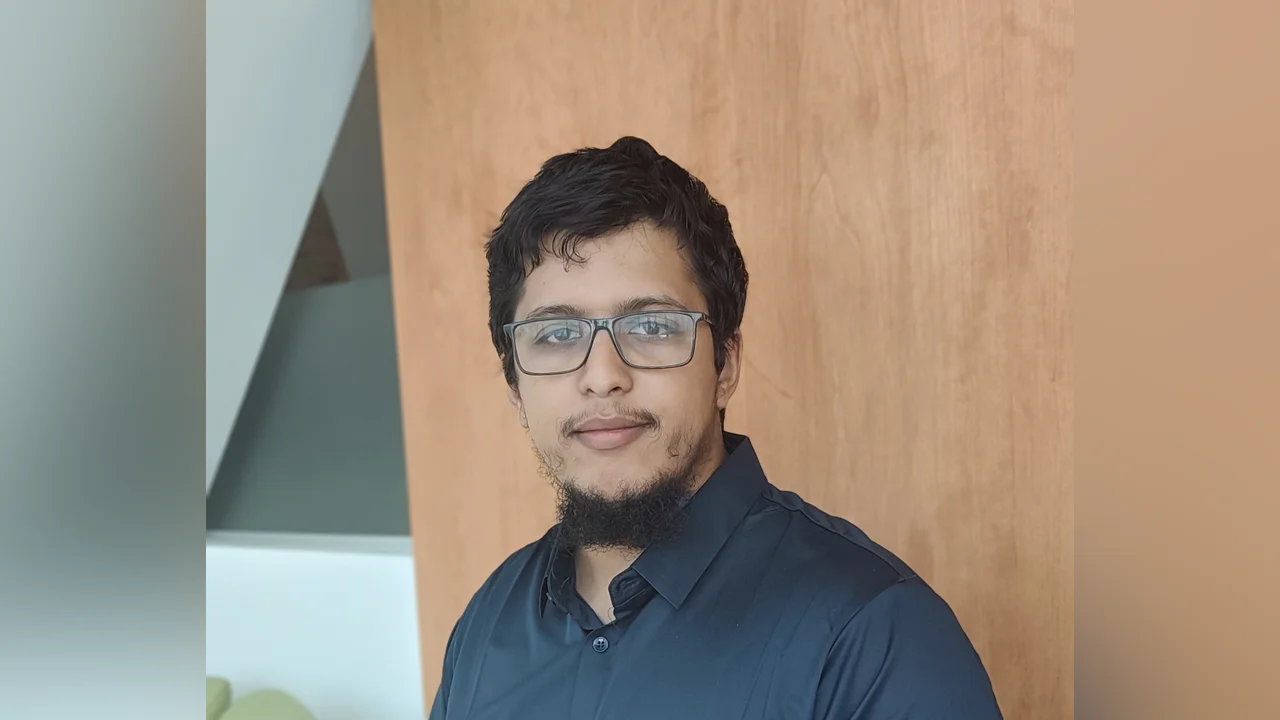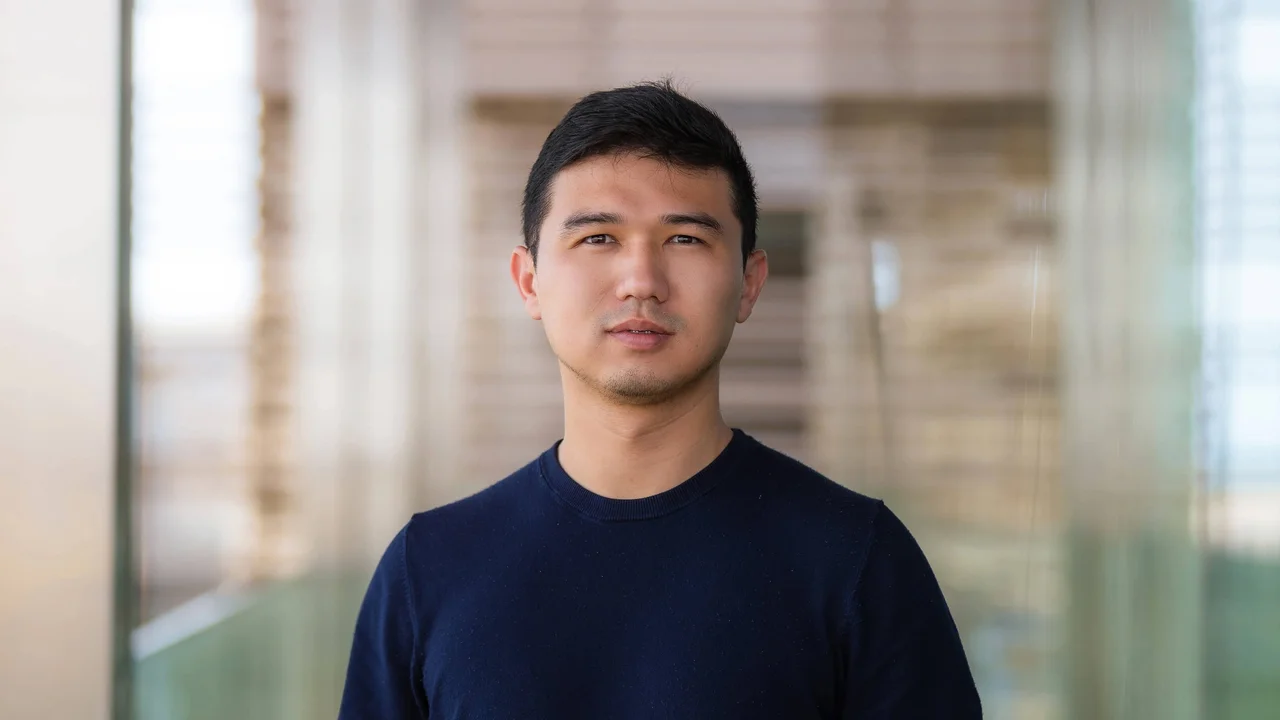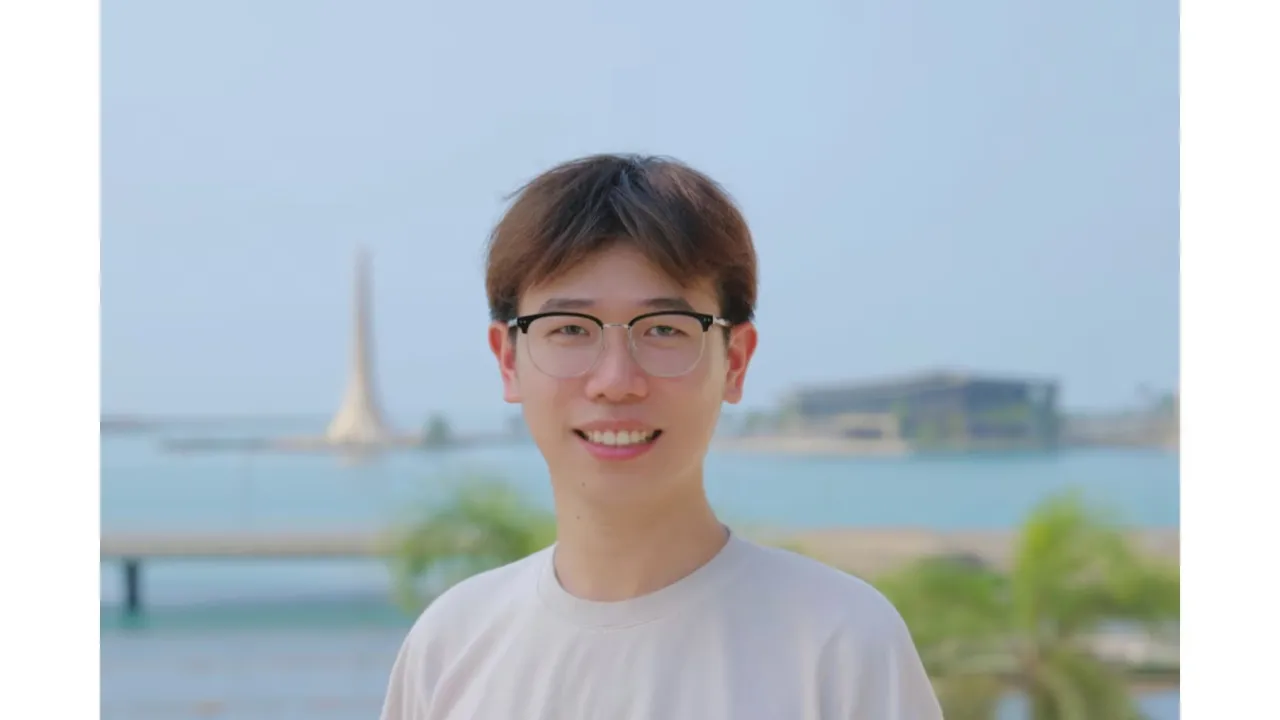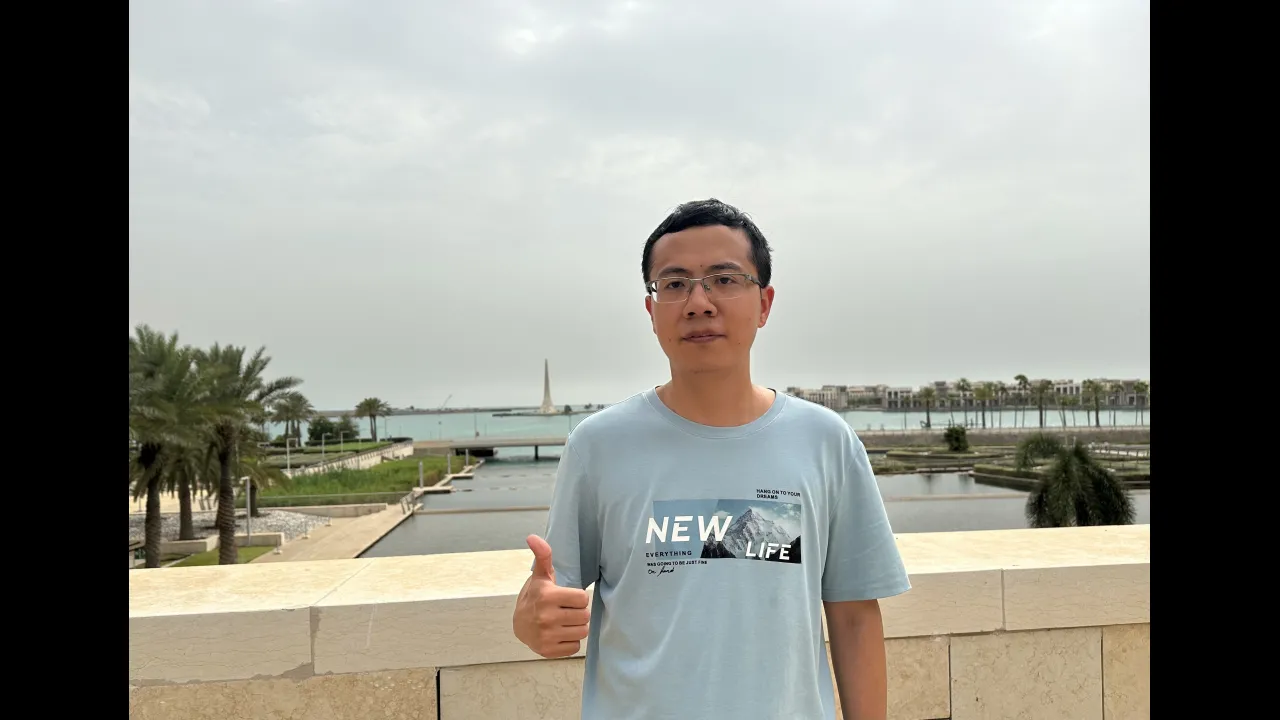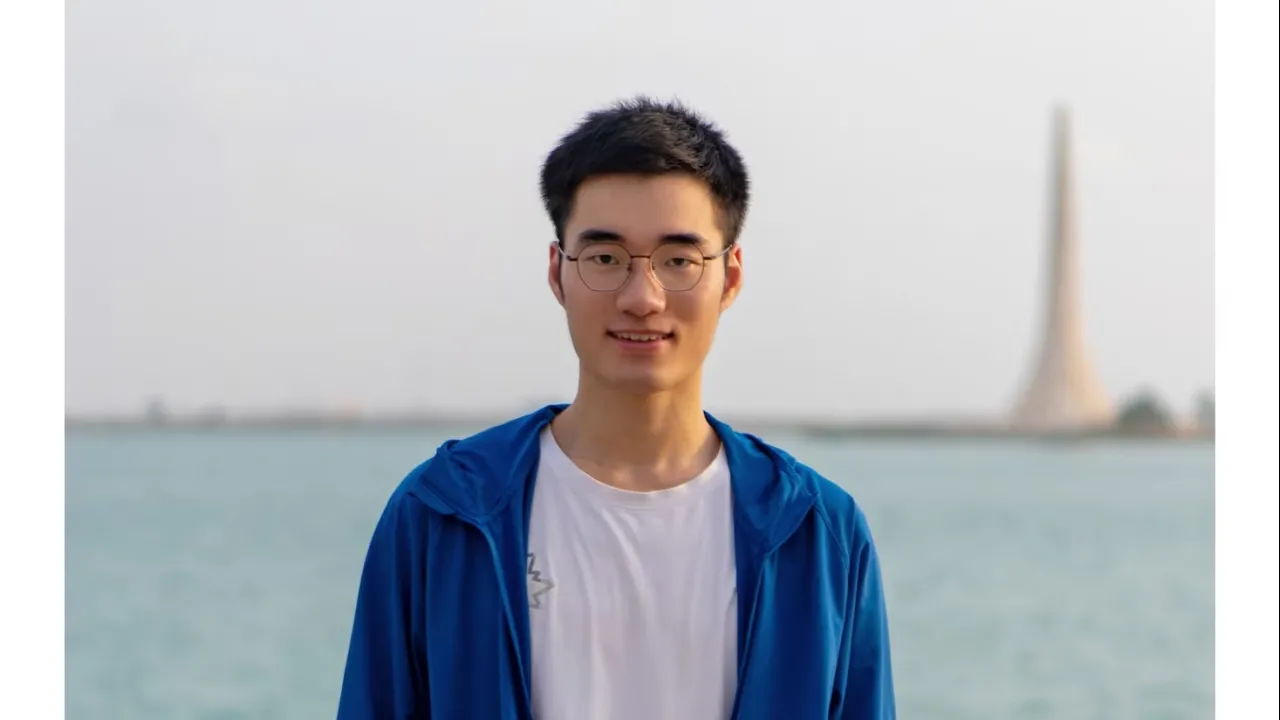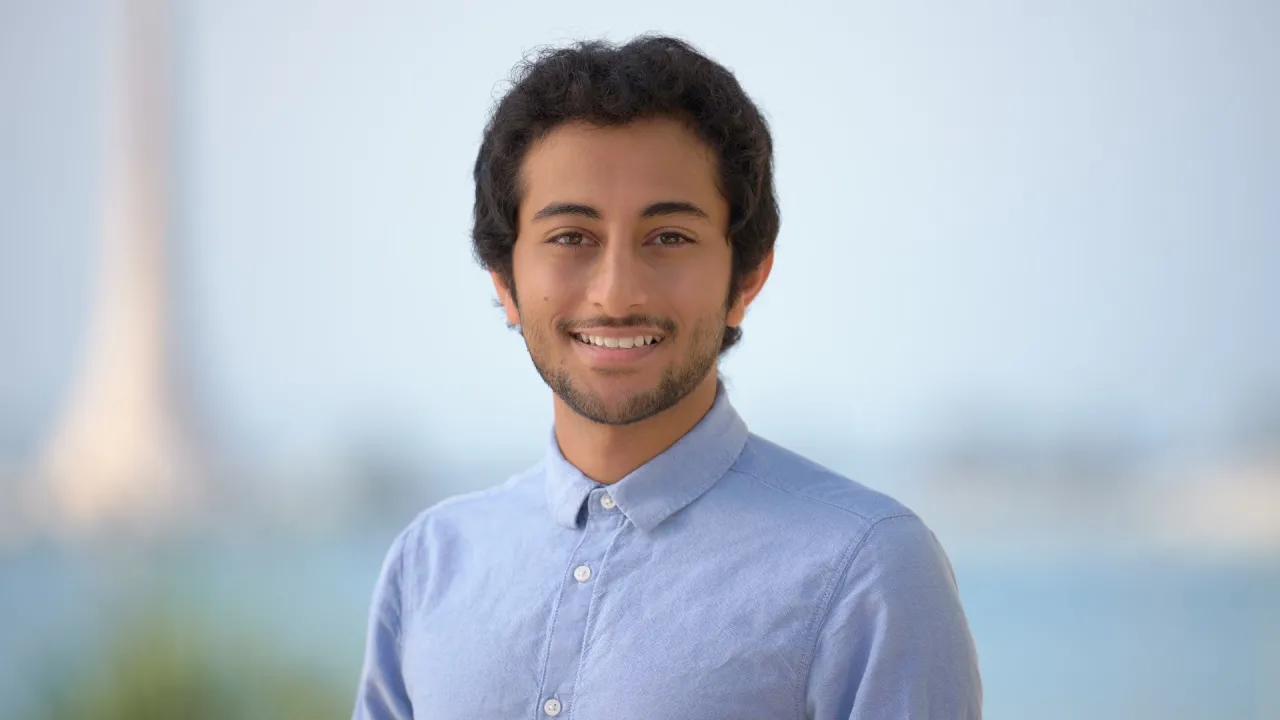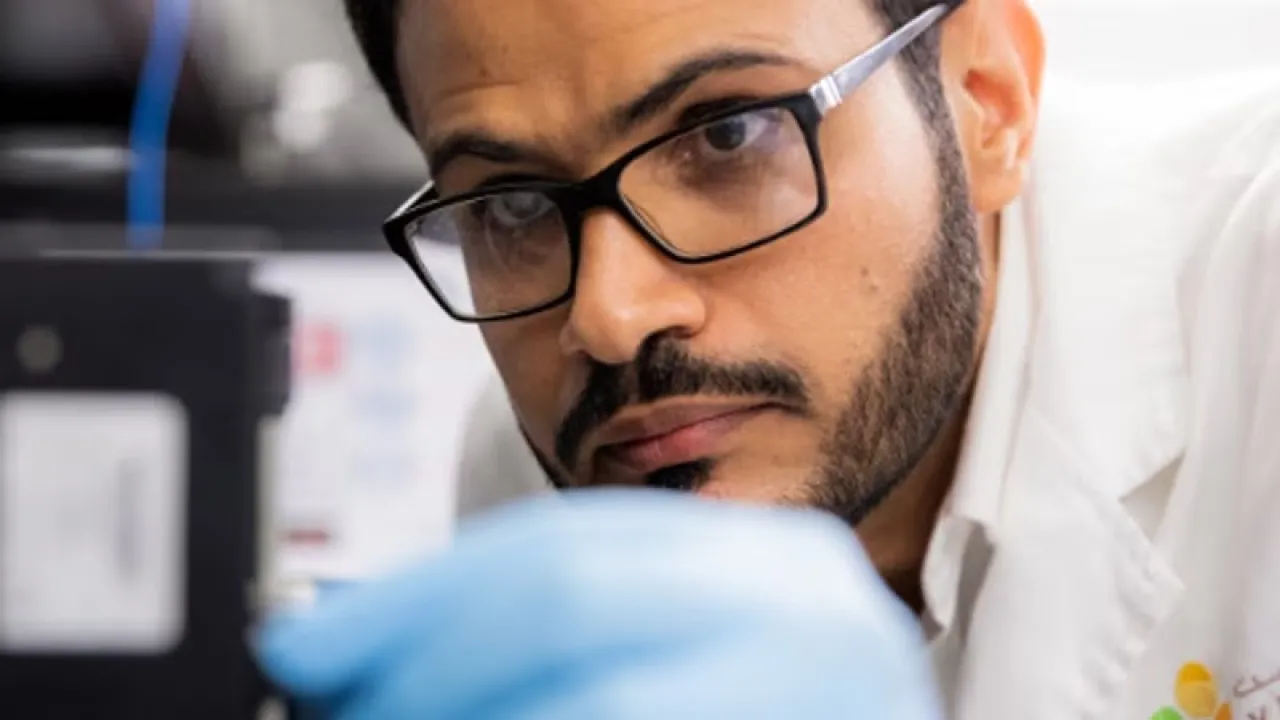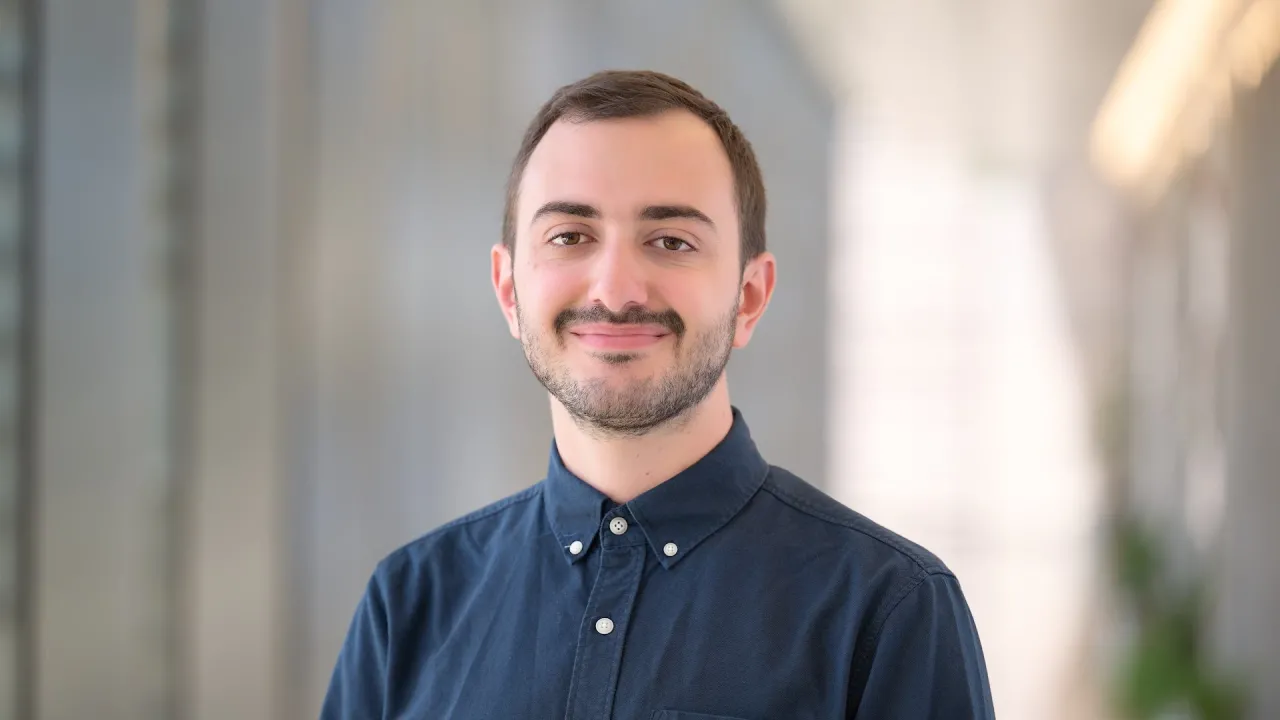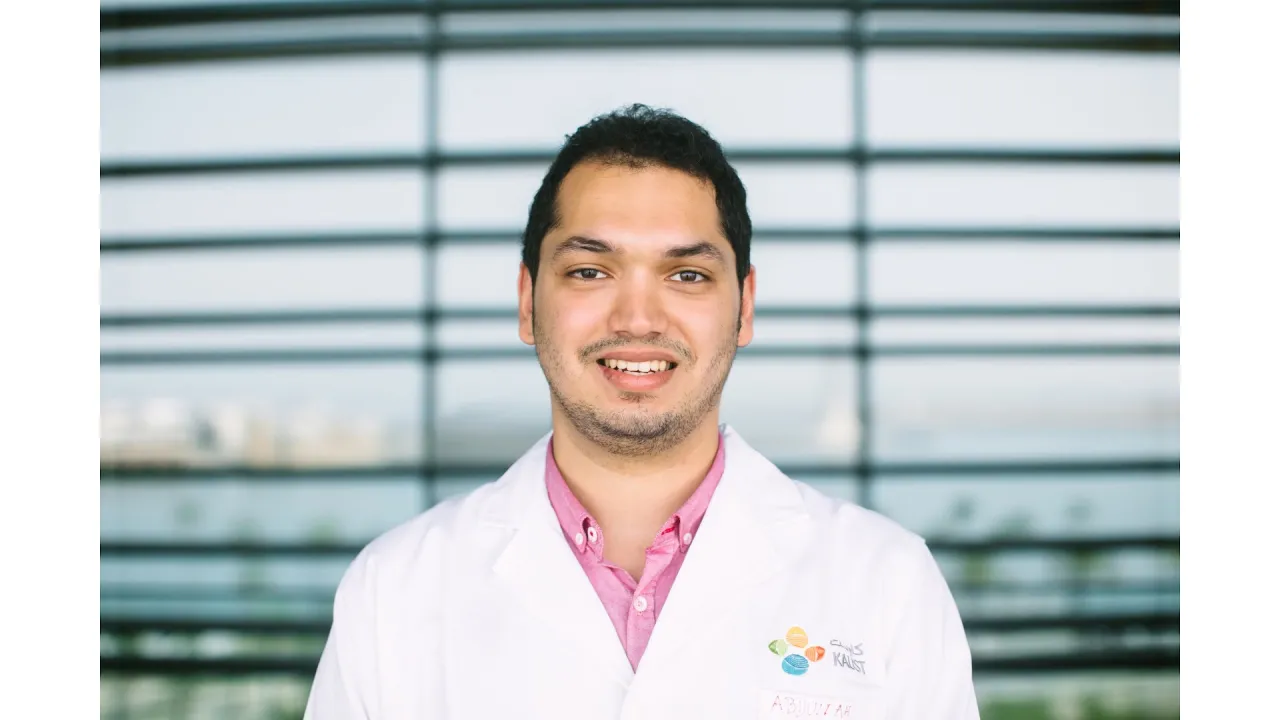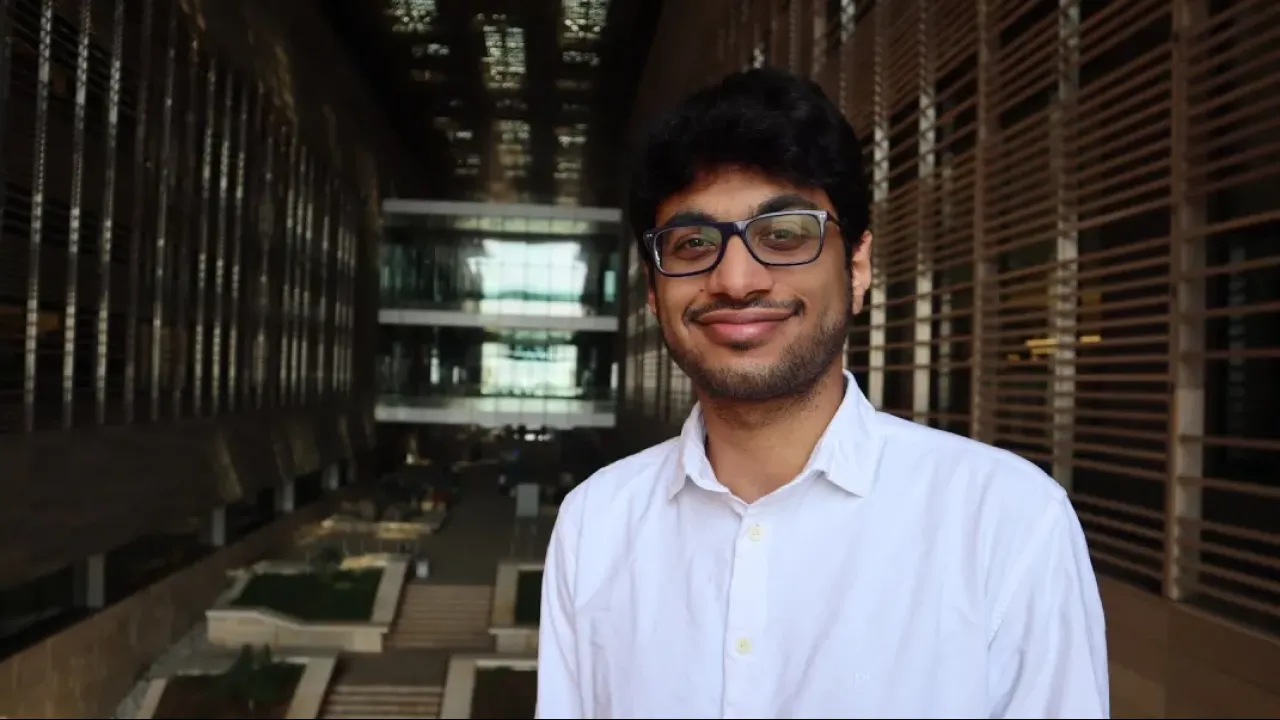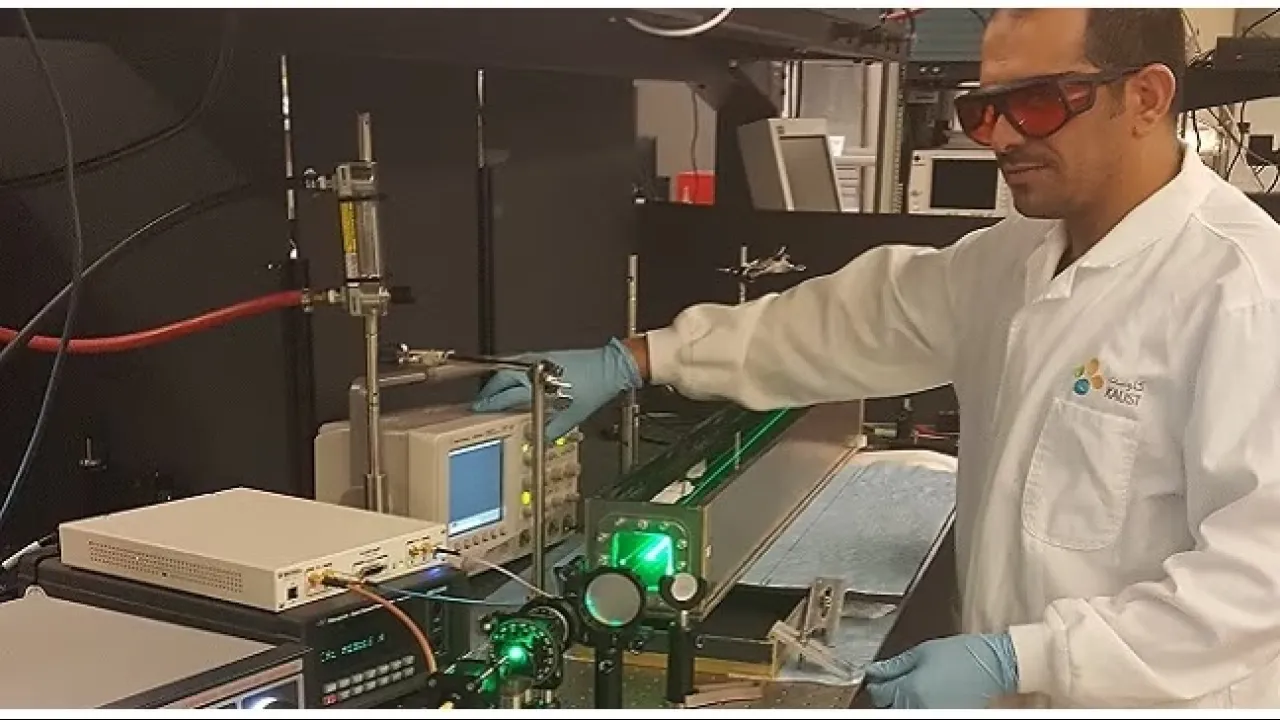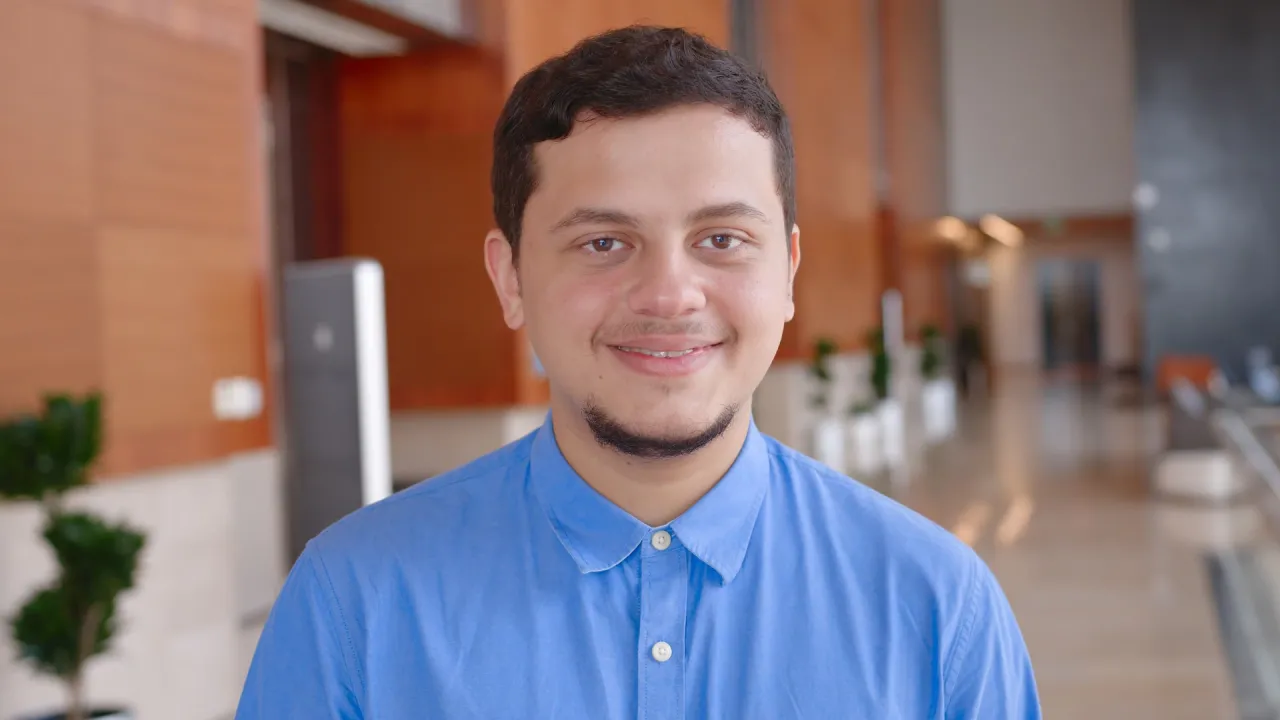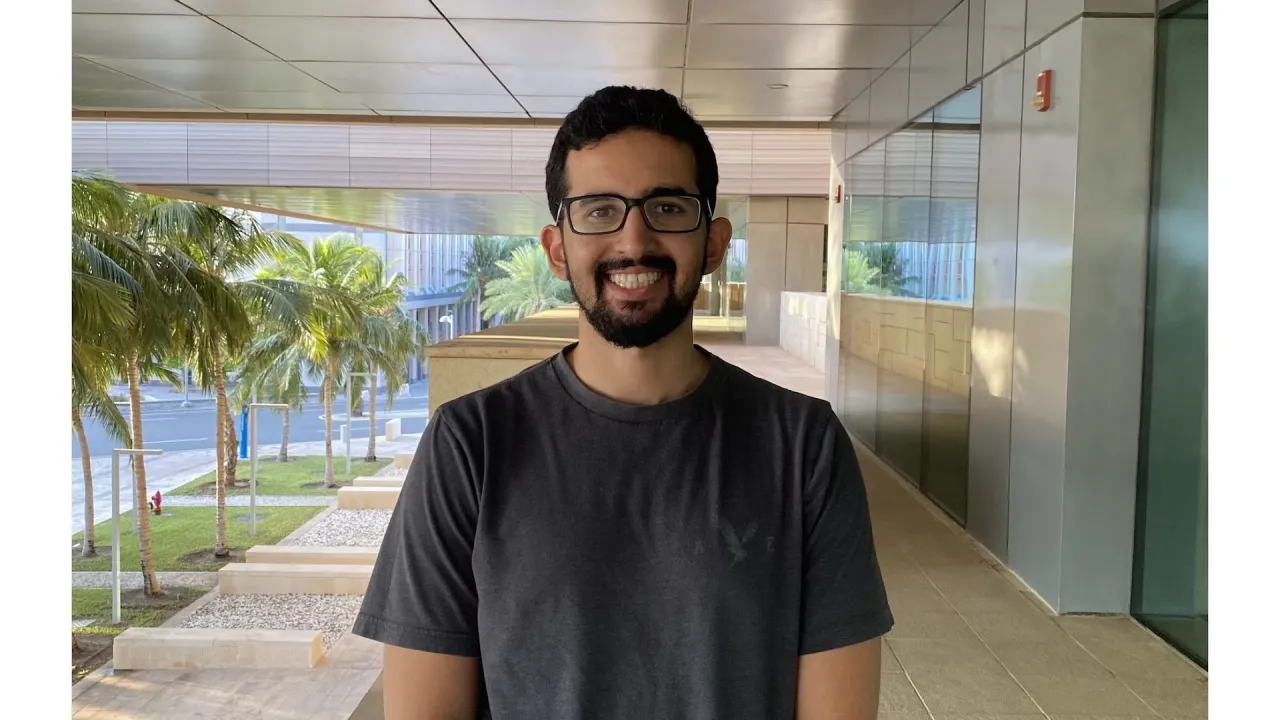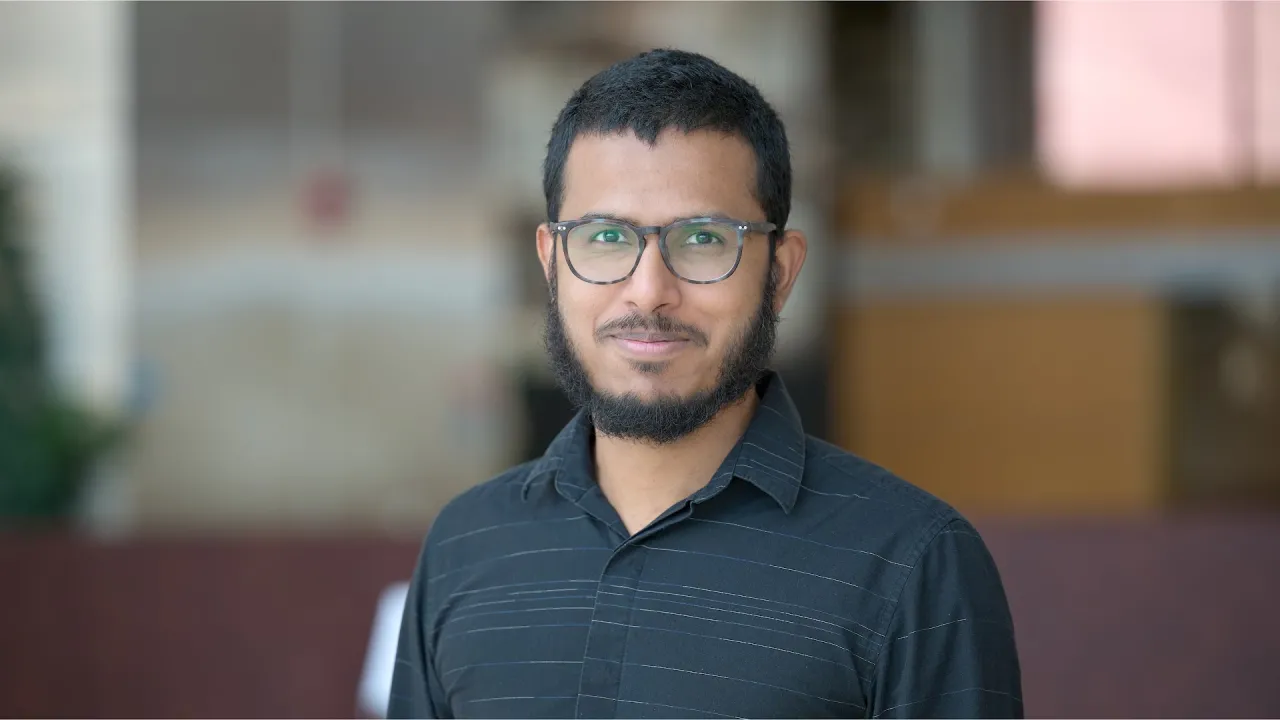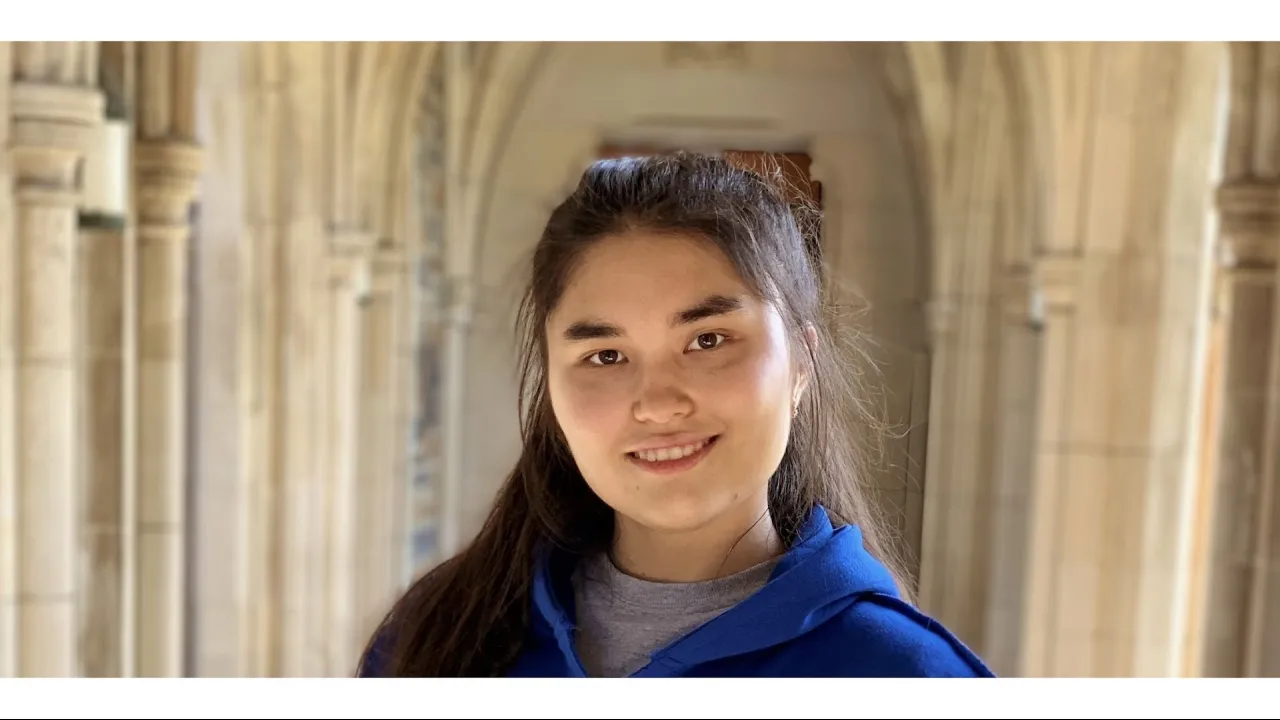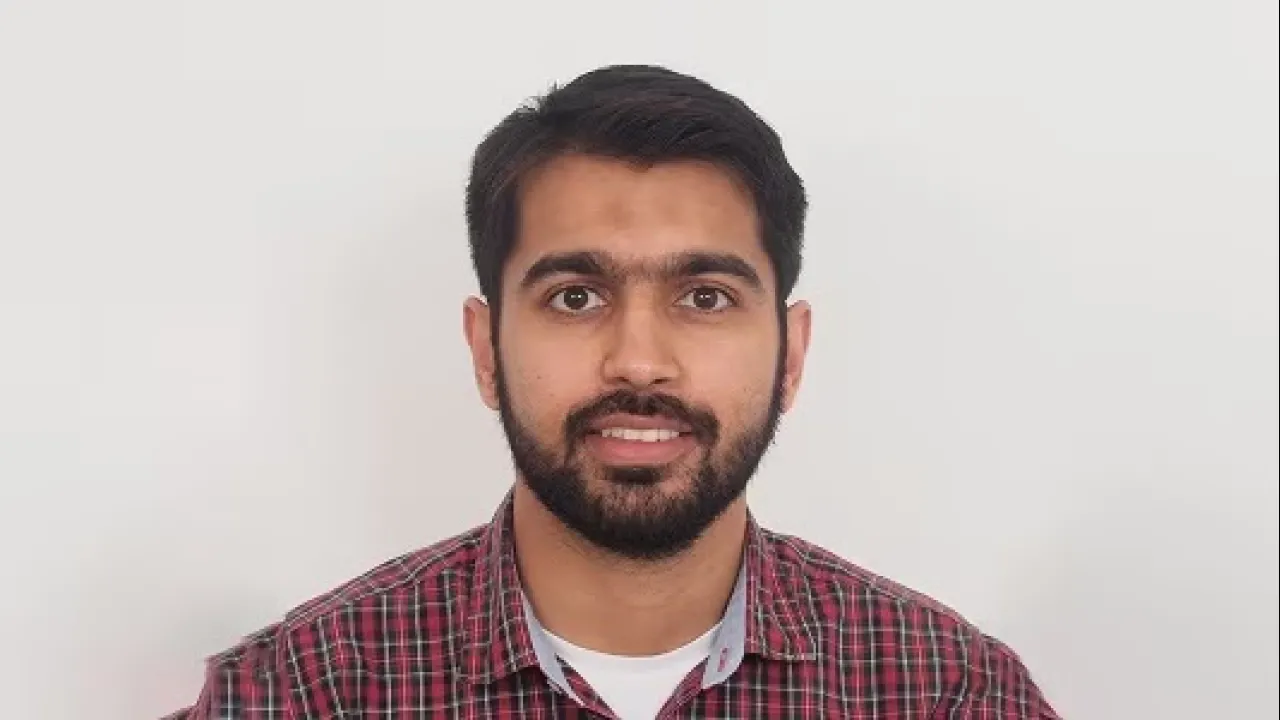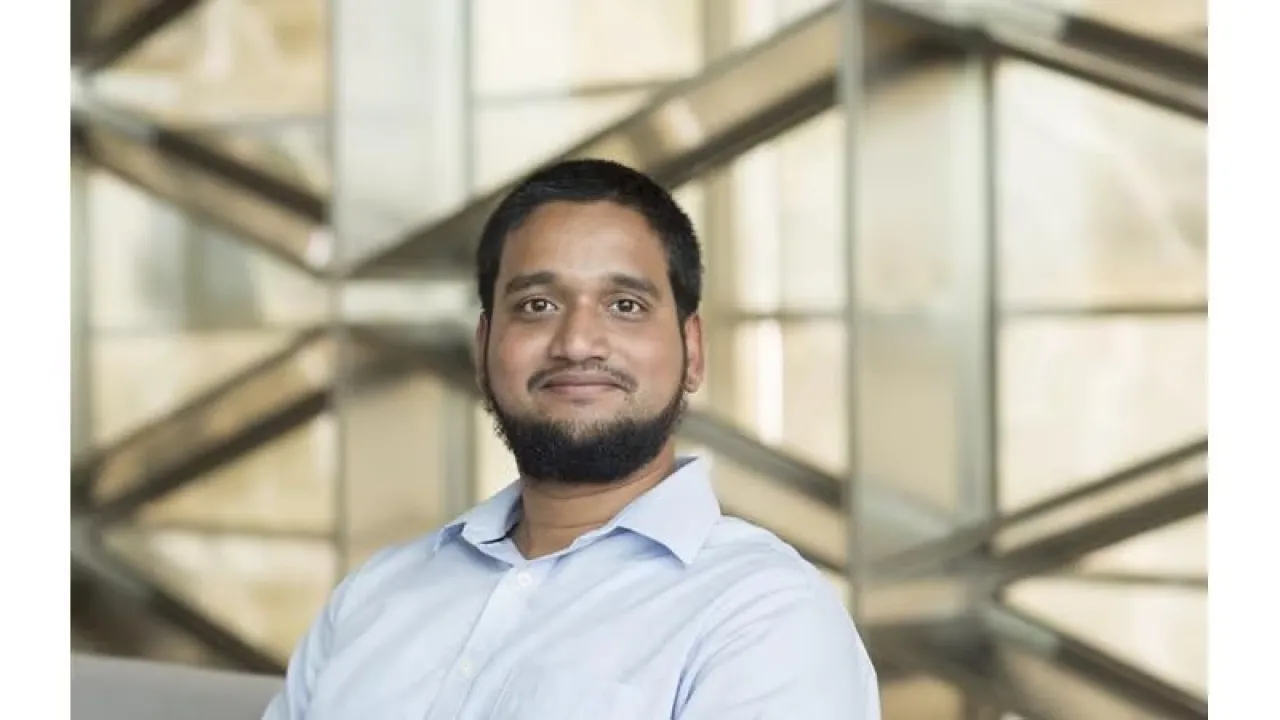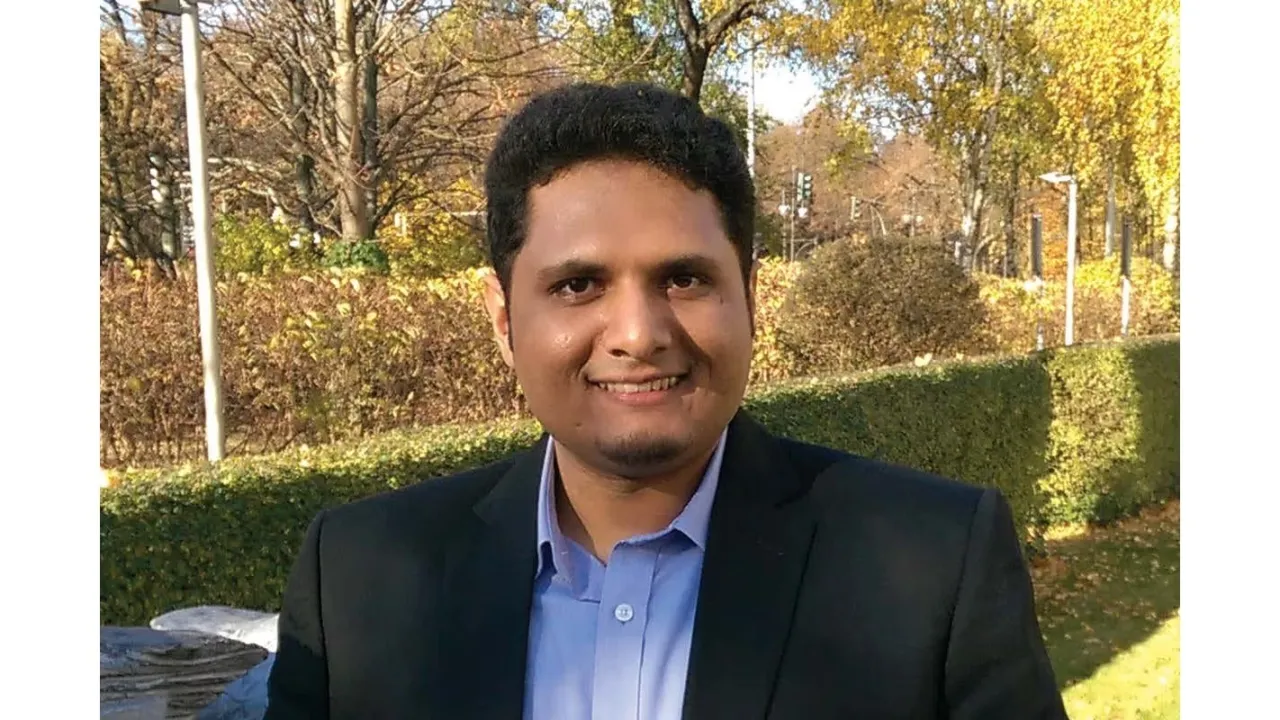Profiles
Students
Biography
Wenbo Yan received the degree of Bachelor of Science in Material Science and Engineering in 2021 from South China University of Technology, Guangdong, China, and a master’s degree in Material Science and Engineering in 2022 from King Abdullah University of Science and Technology (KAUST), Thuwal, Saudi Arabia.He is now a Ph.D. student in the Photonics Laboratory at KAUST.
Research Interests
Photonics and optoelectronics, Solar energy
William He
- Ph.D. Student, Electrical and Computer Engineering
Biography
William He is a Ph.D. student at the Integrated Photonics Laboratory under the supervision of Prof. Yating Wan at King Abdullah University of Science and Technology (KAUST). Before joining KAUST, William did his undergraduate study in University of California, Santa Barbara (UCSB), ranked in the top ~10% and obtained Dean's Honors for his outstanding performance. William has actively participated in research since his second year in UCSB and has been a co-author of three high-quality journals. Besides academic research experiences, William has also been actively participating in several volunteer work, extracurricular activities, and one internship in Pacific Transformer Corporation in United States.
Research Interests
William's research interests include integrated Si photonics and its applications in data centers.
Education
Biography
Xiangpeng Ou is a Ph.D. student at the Integrated Photonics Laboratory under the supervision of Prof. Yating Wan at King Abdullah University of Science and Technology (KAUST). Before joining KAUST, Xiangpeng received a B.E. degree in Optoelectronic Information Science and Engineering from the University of Electronic Science and Technology of China (UESTC) in 2018 and a M.S.degree in Microelectronics and solid state electronics from the Institute of Microelectronics, Chinese Academy of Sciences (IMECAS) in 2022. Xiangpeng had three-year experience in Si photonics design and characterization, three-year hands-on fabrication and characterization experience in Si photonics on IMECAS’s 8-inch standard silicon photonics platform, strong and comprehensive research capability with 4 first-author SCI journals (OE) and 1 conference paper (SPIE/COS Photonics) published, 6 patents applied, and 1 SCI journal submitted.
Research Interests
Xiangpeng's research interests are in Silicon Photonics and its applications, including LiDAR, biosensing, and quantum information processing.
Education
Biography
Xiaoyi Song received his Bachelor's degree in Electronic Science and Technology from the University of Electronic Science and Technology of China (UESTC) in 2022 and is currently pursuing a Master's degree at UESTC. Before joining KAUST, he engaged in research on magneto-optical integration and integrated photonics for three years. His research experience encompasses the deposition, design, and characterization of magneto-optical materials and photonic devices, including phase shifters and nonreciprocal components such as optical circulators. He has published a research paper in Photonics Research.
Research Interests
Xiaoyi’s research interests are in Silicon photonics and its applications, including on-chip light source, LiDAR, and nonreciprocal optical devices.
Education
Xin Yao
- Ph.D. Student, Electrical and Computer Engineering
Biography
Xin Yao comes from the School of Gifted Young at the University of Science and Technology of China (USTC), which is designed for the most talented young students in China. Xin majored in Photoelectric Information Science and Engineering, during the past three years study, he won Silver Award for excellent students (Top~10%) and Freshmen Scholarship. Because of the experience in ‘Jiuzhang’ quantum computing laboratory, he is interested in the Si photonics and integrated optical circuits, which show promise for stable quantum computation. He started his MS/PhD study in IPL in the August 2023.
Research Interests
Silicon photonics, on-chip lasers, heterogeneous integration
Education
Research Interests
- Signal processing.
- Learning method over complex.
- Dynamic structures
- Low-complexity and energy-efficient VLSI signal processing system design.
Education
Xuhao Wu
- Ph.D. Student, Electrical and Computer Engineering
Biography
Xuhao Wu is a Ph.D. student at the Integrated Photonics Laboratory under the supervision of Prof. Yating Wan at King Abdullah University of Science and Technology (KAUST). He received his B.E degree in Optoelectronic Information Science and Engineering from Harbin Institute of Technology and M.S. degree in Photonics from Ghent University. After graduation from Ghent University, Xuhao joined a spin-off company of IMEC, Luceda Photonics, and worked as an application and PDK development engineer. During his time there, Xuhao honed his programming skills and provided exceptional customer support, assisting over 50 individuals with their design projects. Additionally, he conducted training sessions, including two workshops with 100 attendees each, and delivered lectures at universities, including Shanghai Jiaotong University and Zhejiang University. Xuhao's contributions also include building IPKISS PDK for various foundries on the SOI/SiN/SiON platform.
Research Interests
Xuhao’s research interests are in applications of integrated photonics for optical computing, LiDAR, and optical communication.
Education
Biography
Yan Wang is a M.S./Ph.D. student in the Division of Computer, Electrical and Mathematical Sciences & Engineering (CEMSE) at King Abdullah University of Science and Technology (KAUST). She obtained her bachelor's degree of Communication Engineering from the University of Electronic, Science, and Technology of China (UESTC) in 2024.
Research Interests
Photonics and optoelectronics, Ultrawide bandgap semiconductor
Biography
Yara Banda is an M.S./Ph.D. student at the Photonics Lab in the Electrical and Computer Engineering Department (CEMSE) at King Abdullah University of Science and Technology (KAUST). She received her B.Sc. degree from King Abdulaziz University (Jeddah, Saudi Arabia) in 2021.
Biography
Yasmine is a Ph.D. candidate in Electrical and Computer Engineering, supervised by Prof. Eric Feron and Prof. Taous-Meriem Laleg-Kirati. Before joining KAUST as a doctoral student, she was an intern in the Estimation, Modeling, and Analysis Group (EMANG). Her research focuses on developing hybrid model-based and learning-based estimation algorithms for diverse classes of nonlinear systems with convergence guarantees. During her Ph.D., Yasmine completed an internship at the University of California, Berkeley, under the supervision of Prof. Alexandre Bayen, and visited several universities, including Stanford, UC Santa Barbara, and UC Irvine.
Research Interests
Yasmine's research interests include controller design, observer design, virtual sensors, scientific machine learning, UAV control in non-inertial frames.
Education
Biography
Yiming Yang is a Ph.D. candidate at the KAUST Integrated Microwaves Packaging Antennas and Circuits Technology Research Group under the supervision of Professor Atif Shamim. Before joining KAUST, Yiming obtained a bachelor's degree in electronic science and technology from the University of Electronic Science and Technology of China (UESTC).
Research Interests
Yiming Yang‘s research interests include frequency selective surfaces, reconfigurable intelligent surfaces, and meta-surfaces in combination with additive manufacturing, time modulation, and other fabrication and reconfiguration methods.
Education
Biography
Yousef Awad received his B.Sc. degree in Communication and Networks Engineering from Prince Sultan University, Riyadh, Saudi Arabia, in 2020, and his M.Sc. degree in Telecommunication Engineering from King Fahd University of Petroleum and Minerals (KFUPM), Dhahran, Saudi Arabia, in 2024. He is currently pursuing a Ph.D. in Electrical and Computer Engineering at King Abdullah University of Science and Technology (KAUST), Thuwal, Saudi Arabia.
His research interests span various areas of wireless communication systems, including Integrated Sensing and Communications (ISAC), Unmanned Aerial Vehicle (UAV) detection, and applications of Reconfigurable Intelligent Surfaces (RISs). During his M.Sc. studies, he also worked as a Telecommunication Engineer at King Fahd International Airport (KFIA), Dammam, Saudi Arabia, with Enova by Veolia.
Research Interests
Yousef’s research interests span various topics in wireless communication systems, including Integrated Sensing and Communications (ISAC), Unmanned Aerial Vehicle (UAV) detection, and applications of Reconfigurable Intelligent Surfaces (RISs).
Education
Research Interests
- Optical wireless communication.
- Embedded systems.
- Hardware & software co-design.
Education
Yuxuan Xie
- Ph.D. Student, Electrical and Computer Engineering
Biography
Yuxuan Xie is a Ph.D. student at the Integrated Photonics Laboratory under the supervision of Prof. Yating Wan at King Abdullah University of Science and Technology (KAUST). Before joining KAUST, Yuxuan received a B.E. degree from Huazhong University of Science and Technology and spent a year-long exchange program in University of California, Santa Barbara (UCSB) in 2022. In the spring of 2023, he will begin his studies at King Abdullah University of Science and Technology (KAUST).
Research Interests
Silicon photonics, short-link optical communication, and high-performance optical sources such as quantum dot lasers are among Yuxuan's research interests.
Education
Biography
Zhandos Zhakipov received his Bachelor’s and Master’s degrees in Electrical and Computer Engineering from Nazarbayev University, Kazakhstan, in 2022 and 2024, respectively. He is currently pursuing a Ph.D. in the Communications and Computing Systems Laboratory (CCSL) at King Abdullah University of Science and Technology (KAUST), under the supervision of Prof. Ahmed Eltawil.
Research Interests
Zhandos Zhakipov's research interests include reconfigurable intelligent surfaces (RIS), millimeter-wave (mmWave) communication, the Internet of Things (IoT), and digital twins for wireless communication systems.
Education
Biography
Zhican Zhou is Ph.D. student at the Integrated Photonics Laboratory under the supervision of Prof. Yating Wan at King Abdullah University of Science and Technology (KAUST). Before joining KAUST, Zhican received his bachelor's degree (majoring in materials engineering) from Chongqing University (CQU) in 2019 and his master's degree (majoring in photonics) from the joint-cultivation program of Nankai University (NKU) and the National Center for Nanoscience (NCNST) in 2022. Zhican ranked in the top ~5% for both his undergraduate and postgraduate studies. He obtained numerous honors for his outstanding performance, including the First Price Scholarship, Outstanding Graduate of Chongqing University, and the Nankai University Freshman Scholarship. During his postgraduate studies, he mastered the skills of fabrication, modelling, and simulation for electronic devices. Zhican had published a total of 7 journals, 4 of which he was the first or co-first author.
Research Interests
Zhican's research interests are in Silicon Photonics and novel heterogeneous computing hardware system development (including optical computing systems, memristor computing systems, etc.).
Education
Biography
Zichun earned his Bachelor's degree in Microelectronics Science and Engineering from Sun Yat-sen University in 2023 and is currently pursuing a Master of Philosophy degree in The Hong Kong University of Science and Technology (Guangzhou). He has been honored with several prestigious awards that highlight his exceptional achievements, including the Excellent Graduation Thesis Award from SYSU (Top 5%), the Meijiayin Scholarship, and the Red Bird Full Postgraduate Scholarship at HKUST(GZ).
Research Interests
During his postgraduate studies, Zichun has developed strong expertise in the modeling, design and testing of photonic integrated circuits and optoelectronic systems.
Education
Biography
Zinan XIAO is a Ph.D. student at Photonics Laboratory at King Abdullah University of Science and Technology (KAUST).
Before he joined the Photonics Laboratory, he worked as an optical hardware engineer in the industry, focusing on designing and testing optical splitters.
He received his Master of Science degree at Imperial College London, UK.
He obtained his bachelor's degree in optoelectronic information engineering at Chongqing University.
Research Interests
Sensors, Photonics and optoelectronics
Education
Alumni
Biography
Abdullah obtained his master's degree in Electrical and Computer Engineering from KAUST in 2021 and his bachelor's degree from The University of Jordan in 2020. During his engineering studies, he did research in wireless sensor networks and cognitive radio. In 2024, Abdullah won the best paper award at the Global Advanced Air Mobility Academic Paper competition, organized by the International Civil Aviation Organization (ICAO).
Research Interests
Abdullah's current research interests include stochastic geometry modeling, and flying platforms.
Education
Biography
Abdullah Bukhamsin received his B.Sc. degree in Bioengineering from Rice University (Houston, Texas) in 2018. Following that, he completed his M.Sc. degree in Electrical Engineering from King Abdullah University of Science and Technology (Thuwal, Saudi Arabia) in 2020 under the supervision of Dr. Jurgen Kosel. In 2025, he completed his PhD degree in Bioengineering from King Abdullah University of Science and Technology (Thuwal, Saudi Arabia) under the supervision of Dr. Khaled N. Salama and co-supervision of Dr, Ikram Blilou.
Research Interests
Abdullah is interested in developing scalable micro-fabrication methods for 3D electrodes for electrochemical sensors pertaining to applications centered on physiological monitoring of biomarkers.
Education
Research Interests
- Developing Biosensors to detect biomarkers for cancer and other ailments.
- Studying electrochemical characteristics of various materials, polymers and films.
- Designing wearable, point-of-care, biotech medical devices.
- Utilizing machine learning to aid in sensing and data interpretation.
Education
Adeel Akhtar
- Postdoctoral Research Fellow, Electrical and Computer Engineering
Research Interests
- Neuromorphic engineering
- spiking neural network
